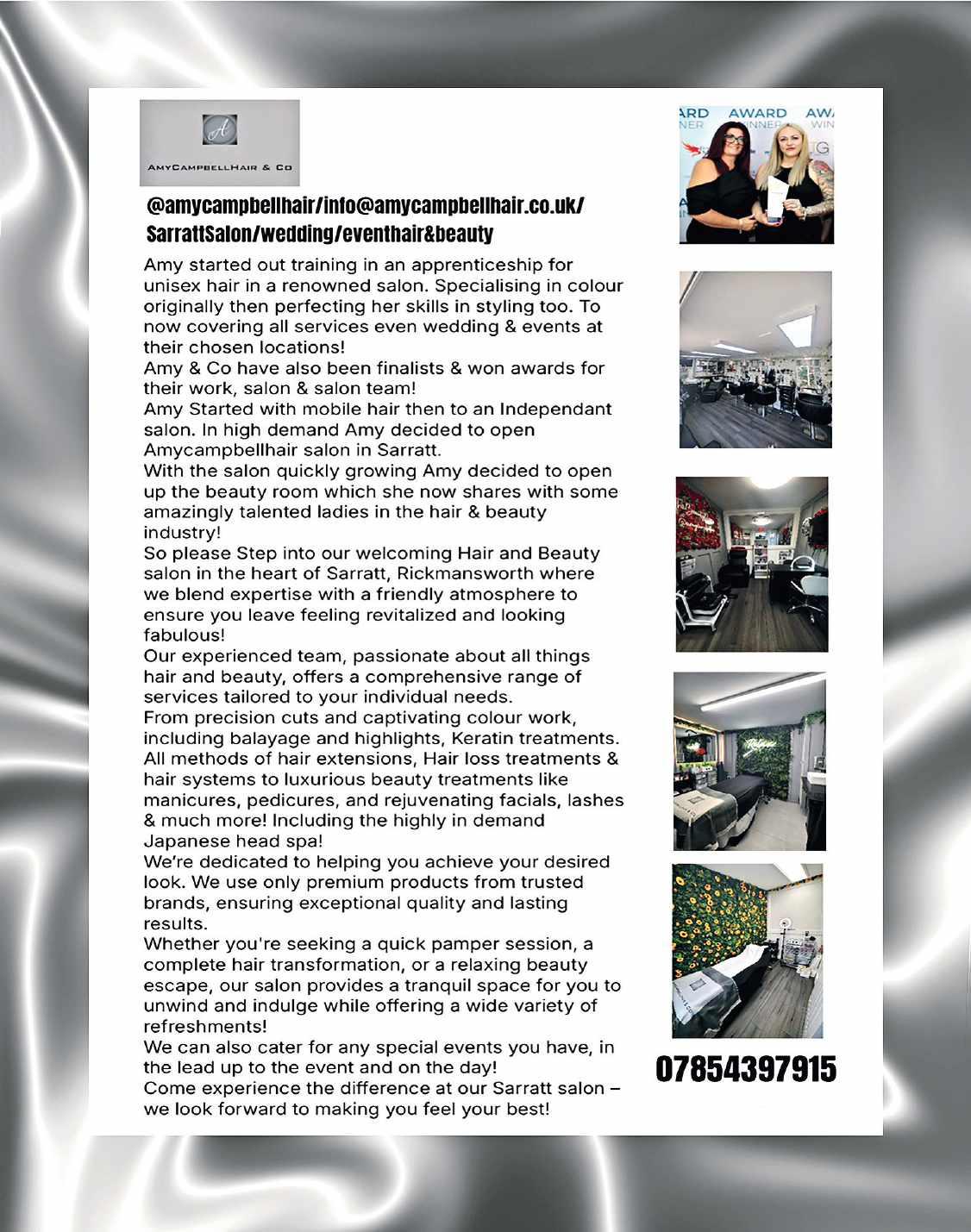

























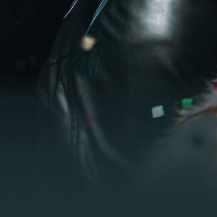


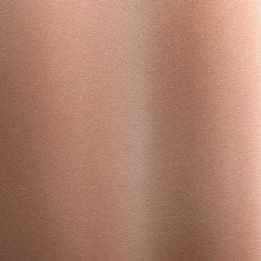







































• 60% don’t take a side in Israel-Hamas conflict
• 63% hold a negative view of Hamas

• 67% want disruptive protests to be banned
• 12% are positive about Israeli government
by Daniel Sugarman
Polling of the British public on its view of the Israel-Gaza war has found that contrary to what those most emotionally a ected may feel, the majority of the UK population – 60 per cent – do not take a specific side in the bitter conflict.
However, the polling – funded by the Pears Foundation over a two-year period – also shows that patience with disruptive protest is wearing thin, with two thirds of people now feeling some demonstrations are so troublesome that they should not be allowed.
Representative polling conducted by More in Common of more than 6,000 people in early
November found that of the UK population as a whole, 26 per cent sympathise more with the Palestinians while 14 per cent sympathise with Israel. By comparison, in October 2023, that figure showed 18 per cent favouring the Palestinians more, compared with 16 per cent support for the Israelis. In general, of the 60 per cent who don’t take a specific side in
the conflict, the most prominent feelings were “there are good and bad people on both sides”; “both sides are as bad as each other”; or “the conflict is too complex”.
However, the polling found both those who are pro-Israel and pro-Palestinian significantly inflate the percentages of the general population whom they feel are actively engaged in sup-

porting either side in the conflict.
Those who sympathised more with the Palestinians believed 51 per cent of the public backed the Palestinians and 19 per cent Israel, while those who sympathised more with Israelis believed 38 per cent of the population sympathised more with Israel, and 31 per cent with the Palestinians. Continued on page 3


by Daniel Sugarman daniel@jewishnews.co.uk
A staggering lack of awareness about the meaning of the word ‘Zionism’ is laid bare by a new poll published today, with five times as many British adults claiming to support the right of Jews to self-determination as identified with the ‘Z’ word.
According to new polling from More in Common, while just 9 per cent of the wider UK population said they were Zionists, 53 per cent said they “support the right of Jewish people to have a nation in Israel”.
Similarly, while 22 per cent identified themselves as having a negative view of Zionists, only 9 per cent specifically had a negative view of “people who support the right of Jewish people to have a nation in Israel”.
In a summary provided by the organisation, which has consistently polled the British public’s attitude towards the conflict over the last two years, “all of this suggests that the public’s perceptions of Zionism have become detached from its literal meaning”.
“People who brand themselves as ‘Zionists’ might mean to be communicating that they simply support the principle of Jewish selfdetermination, but this is far from what other people may hear when they say this.”
“This disconnect makes it easy for conversations to become heated or accusatory very quickly, because people are often responding to what they think the label implies rather than to the person’s actual position. As a result, the term itself can introduce misunderstanding and tension into discussions that
might otherwise reveal more shared ground than disagreement.”
Among those described as “progressive activists”, the numbers are more extreme. More than half – 54 per cent – have a negative view of “Zionists”, with close to a quarter – 23 per cent – having a negative view of “people who support the right of Jewish people to have a nation in Israel”.
General concerns in British society about antisemitism also rose over the last 18 months.
In April 2024, about one third of respondents (34 per cent) felt the UK was a mostly or very unsafe place for Jews. That number rose sharply from the summer of 2025, culminating in almost half of respondents (48 per cent) feeling that way in the aftermath of the Heaton Park synagogue terror attack.
“Progressive activists” were more likely to see Islamophobia as more serious than antisemitism – 90 per cent viewed the former as very or somewhat serious, while 73 per cent had similar views of the latter.
Among those identified as “traditional conservatives”, however, 75 per cent saw antisemitism in the UK as a very or somewhat serious issue, compared with just 45 per cent who felt the same way about Islamophobia.
As More in Common identified: “Concern about antisemitism and anti-Muslim hate has become politically polarised. Right-leaning segments are much more worried about antisemitism than anti-Muslim hate, while leftleaning segments show the reverse pattern.”
The polling also found that those with strong views on the conflict are increasingly unable to discuss these issues in good-faith with each

other. When asked why people hold opposing views, those with strong views on both sides attribute bad motives rather than genuine disagreement: people who sympathise more with Palestine say that others support Israel because “they are anti-Muslim/anti-Arab,” (40 per cent) while those who sympathise more with Israel are most likely say people back Palestine because they are antisemitic (65 per cent).
Clearly connected to this, 43 per cent of those who sympathise with Palestine would consider ending a friendship with someone
Far-left website Novara Media and Green Party leader Zack Polanski have both been accused of making “appalling Holocaust comparisons” after likening the UK government’s new asylum policy to Nazi-era seizures of Jewish property, writes Lee Harpin.
On Tuesday, as Home Secretary Shabana Mahmood introduced new measures to address the UK’s asylum crisis in the House of Commons, Novara Media posted a photograph of jewellery seized by the Nazis on social media, accompanied by the caption: “Labour’s Plan To Seize Asylum Seekers’ Jewellery ‘Resembles Nazi Policy’.”
The post implied Mahmood’s plan “resembles a policy used against Jewish people in Nazi Germany”.
The post read: “Under Mahmood’s crackdown, the state will seize assets

Trump, backed by Tommy Robinson, channelling the Nazis – here’s Labour’s new policy on migration.”
Separately, on BBC2’s Newsnight, Green Party leader Zack Polanski said: “I am Jewish, and we have seen this with Nazi Germany. We are seeing it in 2025. This government needs to hang their heads in shame.”
from migrants – including jewellery, watches, cars, and bikes – and sell them to cover their accommodation costs. In Nazi Germany, the state systematically confiscated and catalogued jewellery and other property from Jewish people.” Campaign group Good Law Project also condemned Labour’s proposals, writing on X: “Inspired by Donald
Karren Pollock, chief executive of the Holocaust Educational Trust, said: “There is absolutely no justification for these appalling Holocaust comparisons.
“They distort the unique horrors of the Holocaust. To invoke any of this for cheap political point-scoring is not only deeply inappropriate but utterly disgraceful.”
During parliamentary debate, Mahmood said: “We are not taking jewellery at the border; I cannot say it any more clearly than that.”
who posted on social media in support of Israel, and 46 per cent of those who sympathise with Israel would consider doing the same over a pro-Palestine post.
Luke Tryl, director of More in Common, said: “In focus groups people explained they’d stopped being friends with people because their views on the conflict – while polling reveals significant numbers would think badly of someone for expressing support to ‘the other side’”.
u Editorial comment, page 18
Foreign Secretary Yvette Cooper has called for a major increase in humanitarian aid for Gaza after the UK this week backed a UN Security Council resolution to implement a 20-point peace plan for the region.
The resolution endorses the US’s ceasefire plan, which authorises an international stabilisation force to provide security in the territory and calls for a yet-to-be-established Board of Peace as a transitional authority.
The Foreign Secretary said the resolution “had broad support, including from the Arab and Islamic states in the region, and it provides the UN mandate needed for the International Stabilisation Force to help implement” the plan.
“We must now have urgent action to open all the crossings, lift restrictions and flood Gaza with aid. And we must keep up progress for a twostate solution with peace and security for Israelis and Palestinians side by side.”
During a tour to the Middle East earlier this month, Ms Cooper announced the UK would provide an extra £6m of humanitarian support for Gaza in the form of sexual and reproductive healthcare for women and girls provided by the UN Population Fund.
Reacting to the vote, US President Donald Trump thanked the UK “and all of the countries on the UN Security Council”, and said the resolution “will lead to further peace all over the world”.
Trump previously said former prime minister Sir Tony Blair was among the names being considered for a role on the peace board for Gaza, but added he wanted to “find out that he is an acceptable choice to everybody”.
The resolution was opposed by Hamas, who said the proposal does not meet the “Palestinian people’s political and humanitarian demands and rights”.
Young British Jews across the political spectrum are deeply concerned by rising antisemitism; are angry at outsiders considering them responsible for the actions of the Israeli government; and have deep suspicions about the motives of Tommy Robinson, according to new data, writes Daniel Sugarman.
A series of focus groups, conducted in October by More in Common in partnership with Jewish News, also showed widespread distrust of mainstream media and the feeling the government made a mistake in recognising a Palestinian state when it did.
The aim of the groups was to discover how Jews aged 15-25 are feeling in the UK today, representing those from across the country who had attended both Jewish and secular schools, and those affiliated with different denominations, as well as none at all.
Each group had 10 people; two of the focus groups included self-identified Zionists only, and the other two included those who said they were non-Zionist, antiZionist, or did not know.
All the focus groups identified deep concern with rising antisemitism in the UK, though responses from individuals differed.
While many spoke about concealing outward signs of their Jewish identity, such as religious symbols, others said that hostility made them even more determined to publicly show their Jewishness.
Likewise, both Zionists and others disliked that strangers would make assumptions about their worldviews or blame them for the actions of the Israeli government simply because they were Jewish.
Almost every participant in every focus group viewed Tommy Robinson as a bad ally.

Some felt that he was aligning with Israel simply to signal that he was anti-Muslim, while even others who agreed with his views on Israel feared he would tarnish the reputation of pro-Israel people more widely.
A small minority felt positively towards him as someone standing up for Israel at a time when relatively few non-Jewish British people seemed prepared to do so.
At the same time, young Jews across the board – even among those most sympathetic to the Palestinians – felt the Government had moved to recognise a Palestinian state at the wrong time.
They felt the timelines did not make sense, and that simply recognising a state would not will one into existence, when on the ground so many key features of a state were missing.
Mistrust of legacy media, particularly the BBC, was high – with Zionist voices in particular highlighting specific examples of perceived BBC anti-Israel bias.
Outlets such as GB News, social media, and family and friends were all cited as alternative sources of information.
Where the Zionist groups differed with the other groups was primarily in perceptions of Israel – including on the very definition of
“Zionist” itself. Zionists were far more likely to identify Zionism as straightforwardly meaning that Jewish people have a right to a homeland and a state of their own.
By this definition, most pro-Israel participants could not understand why anyone would oppose Zionism, and many argued that opposing the Jewish right to self-determination was inherently antisemitic. They were also extremely critical of “anti-Zionists” who they thought harmed Jews around the world.
By contrast, the other groups were particularly reluctant to adopt either “Zionist” or “anti-Zionist” as labels, describing these terms as “harsh”, “polarizing”, and presenting a false binary that failed to capture the nuance of their views.
Several explained that while they could see merit in the concept of a safe haven for Jewish people, they did not feel personally connected to Israel and were deeply critical of its government’s actions. Many thought that saying they were Zionist would imply they supported the current Government of Israel.
On the question of that government, the Zionist groups did not think Israel had acted perfectly throughout the current conflict, although they felt that some of the reported actions of the Israeli government had been exaggerated by the UK media. The other groups were far more ready to criticise the Israeli government’s conduct.
Those with the strongest connections to Israel were the most likely to consider moving there in the future – with an emphasis on being able to safely express themselves as Jews. By contrast, those who had less of a connection to Israel felt that despite rising antisemitism, the UK was still safe for Jewish people.
Continued from page 1
More in Common suggested the possibility “that people overestimate estimate how common their own viewpoints are is evidence that perhaps people are filtering into their own echo chambers on social media.”
After two years, More in Common found that the general public’s patience for disruptive protest was low; 27 per cent of Britons would think worse of someone for going to a pro-Palestine march, while 30 per cent would think worse of someone for going to a pro-Israel march.
More in Common also found that just 12 per cent of Britons have a positive view of the Israeli government, with more than half having a negative view. For most British people, however, that disapproval does not extend to Israeli civilians, with fewer than 20 per cent expressing a negative view.
The British public’s perception of

Hamas is overwhelmingly negative – 63 per cent – while the percentage who have a somewhat positive view of the group are in the low single digits.
One group which is much more likely to express much higher rates of sympathy for the Palestinians were those categorised as “progressive activists”, who despite making up approximately 12 per cent of the population as a whole have played
an outsized role in the debate in recent years, accounting for roughly a quarter of all people posting on social media about the conflict.
Another group where sympathy for the Palestinian side far outweighs support for Israel is in the 18-24 year old bracket, where 55 per cent sympathise more with the Palestinians versus just 3 per cent sympathising more with Israel.
Trust in mainstream media was
far lower among those with strong views on the conflict. In particular, as More in Common outlines, those sympathising with Israel increasingly view it as pro-Palestine (particularly following controversies like the Gaza documentary narrated by a Hamas official’s son), while Palestine supporters have become slightly less critical.
In November 2023, 45 per cent of those who sympathised more with Israel felt the BBC was biased towards the Palestinian side, compared with 53 per cent today. By contrast, while in November 2023, 38 per cent of those who sympathised more with the Palestinians believed the BBC was biased towards the Israeli side, that number has declined to 27 per cent today.
The polling also shows that most Britons are uncomfortable with musical artists inciting political violence at concerts or festivals. Just eight per cent say they would like it
if a musical artist said “death to the IDF” at a concert, compared with 64 per cent against.
Only four percent would support a musician saying “globalise the Intifada” on stage compared with 56 percent against, while a higher percentage (33 per cent) disapproved of a musician saying “Free Palestine” on stage than approved of it (29 per cent).
Luke Tryl, director of More in Common, said: “While debates about Israel-Palestine have dominated airtime over the last few years, the tenor of those debates is leading to the majority of the country switching off or withdrawing from the conflict altogether.”
Tryl described how “the majority of Britons… are shocked and appalled by the conflict, but do not take a side either way”, and that it is “Britain’s Jewish communities and Muslim communities who are bearing the brunt of rising hate”.
Hertfordshire Police have admitted unlawfully arresting a Jewish mother and her partner over messages sent in a parents’ WhatsApp group – and have paid the couple £20,000 in damages, writes Annabel Sinclair.
Rosalind Levine and her partner, Times Radio producer and Liberal Democrat councillor Maxie Allen, were held for 11 hours in January after raising concerns about leadership and governance at Cowley Hill Primary School in Borehamwood, where their disabled daughter was enrolled.
The couple confirmed they received formal acknowledgement this week the arrest was unlawful.
Speaking to the BBC, Allen said it was “an emotional moment” when the force accepted liability.
“We were just really pleased that Hertfordshire Constabulary have recognised that this shouldn’t have happened,” he said.
“For us, the main thing really was the liability – that the arrest was unlawful. That’s what mattered most.”
Levine described being arrested in front of one of her children as “deeply traumatic”.
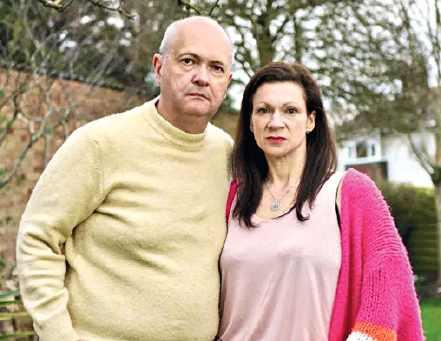
“When they read out the list of things I was being arrested for – malicious communications, harassment, causing a nuisance – I knew they couldn’t possibly have evidence,” she said. “I was pretty shocked.”
She added that the experience had destroyed her trust in the police: “I don’t trust them now. I’m angry mostly for my children.”
Criminal charges have been dropped against eight proPalestinian activists accused of disrupting the London film set of Israeli actress Gal Gadot.
The group – known online as the “GG8” – had been due to appear at Westminster Magistrates’ Court under the Trade Union and Labour Relations Act 1992 for allegedly trying to block access to the set of Gadot’s movie The Runner
The Crown Prosecution Service has confirmed the case has been discontinued.
One of those arrested, Pedro Baptista, posted on social media: “Our case has been dropped, and Gal Gadot’s case has been dropped.”
He added: “We never did anything wrong – they were scared of embarrassing themselves in court. Free Palestine. F*** Gal Gadot.”
Another defendant, Anika Zahir, wrote: “Good news –the case against myself and seven other activists has been dropped. The police pushed
this to repress our right to protest. They failed.”
The protesters were accused of using sirens, banging metal pans and chanting near filming locations in Westminster and Camden, with footage showing Palestinian flags and banners reading “Trash Gadot not welcome in London”.
All eight had been bailed on condition they stayed 200 metres from filming sites.
The Met Police previously said it acted after repeated disruption and insisted it “will not tolerate unlawful interference with legitimate professional work in London”.
At the time of the arrests, Supt Neil Holyoak said: “We acknowledge the importance of peaceful protest, but we have a duty to intervene where it crosses the line into serious disruption or criminality.”
Solicitor Kate McFadden, who represented several of the accused, had described the charges as “disproportionate”.
Six officers attended the family’s home on 29 January, with both parents taken into custody and interviewed before being released without charge.
Two months later, Hertfordshire Police told them no further action would be taken.
The arrest followed a longrunning dispute with Cowley Hill

Primary School. According to The Times , the school complained to police after receiving what it called “a high volume of direct correspondence and public social media posts”.
This was is said by the school to have caused “upset to staff, parents and governors”.
Levine and Allen had raised concerns about the recruitment process for a new headteacher and contacted the school repeatedly about support for their neurodivergent, epileptic daughter, who is registered disabled.
A police warning issued in December advised the family to remove her from the school, which they did early in January, a week before the arrests.
Allen said they were never shown the messages used to justify the police action.
“When we look back through, the spiciest thing we could find was Roslyn calling one senior person at the school a ‘control freak’. That was the strongest remark we could find,” he said.
Hertfordshire Constabulary said there would be no misconduct proceedings against individual officers but acknowledged that “the legal test around necessity of arrest was not met”.
Hertfordshire police and crime commissioner Jonathan Ash-Edwards also issued a statement saying: “There has clearly been a fundamental breakdown in relationships between a school and parents that shouldn’t have become a police matter.”
He added: “Parents should be able to raise concerns about public services without worrying they will get a knock at the door from police.”
The case has raised fresh questions among free-speech advocates and social media watchers about the use of police powers in low-level disputes involving schools and parent groups.
A jury has been sworn in to try six alleged pro-Palestine activists accused of breaking into an Israel-based defence firm’s UK site in possession of sledgehammers.
Charlotte Head, Samuel Corner, Leona Kamio, Fatema Rajwani, Zoe Rogers and Jordan Devlin are accused of aggravated burglary, criminal damage and violent disorder in relation to an alleged attack by several people at Elbit Systems UK’s site near Patchway, Bristol, in August last year.

A panel of 14 jurors was selected at Woolwich Crown Court and told the case will be opened by prosecutor Deanna Heer before the jury is reduced to the traditional 12.
Corner, 23, is also charged with causing police sergeant Kate Evans grievous bodily harm on the same day.
Head, 29; Kamio, 30; Rajwani, 21; Rogers, 22; Devlin, 31, and Corner are alleged to have trespassed on the facility as part of a larger group.
A previous hearing was told the alleged attack caused more than £1m of damage.
A group of noisy proPalestine protesters demonstrated at the gates outside the south-east London court, and chanting could be heard by those in the courtroom.
Mr Justice Johnson told jurors: “You will have heard there is quite a lot of noise going on outside the court. Just ignore it.”
The six defendants deny all the charges and the trial is expected to last eight weeks.
A terror plot suspect was “very happy” running an Italian restaurant in Norfolk before moving to north-west of England, where he planned to target a mass gathering of Jews, a court has heard.
Tunisian national Walid Saadaoui, 38, is said to have wanted to cause “untold harm” and kill as many Jewish people as he could in a gun atrocity.
The married father of two denies preparing acts of terrorism between December 2023 and May last year.
Giving evidence on Tuesday at Preston Crown Court, Saadaoui told jurors he came to the UK in 2012 with his first wife, Jane, who he met in his home country, where he worked as a hotel entertainer helping with dance shows, quiz contests and water aerobics.
He said he applied successfully for a work visa and the couple moved to Clacton-onSea, Essex, where he gained employment at a Haven Holiday Village.
Saadaoui said he saved by working extra hours at the park, working in shops, the bakery and the arcade and in 2018 bought the Albatross restaurant in Regent Road, Great Yarmouth.
He told the jury he trained as a chef and said: “I wanted to progress in life. I wanted to be my own boss.”
His barrister, Felicity Gerry KC, asked: “Would you describe it as a very successful business? You were happy?”
“Very,” said Saadaoui.
Prosecutors say police were able to prevent the plans of Saadaoui and co-defendant, Amar Hussain, 52, after they unknowingly revealed the plot to an undercover agent.
Hussain, of no fixed address, also denies preparing acts of terrorism.
A third defendant, Saadaoui’s brother Bilel Saadaoui, 36, of Hindley, Wigan, has pleaded not guilty to failing to disclose information about acts of terrorism.

The Medical Practitioners Tribunal Service (MPTS) has said a doctor who engaged in repeated rants about “Jewish supremacy” should be suspended from medicine for nine months while a General Medical Council investigation into her conduct is carried out, writes Joy Falk.
The tribunal said it was “satisfied that there is sufficient information to suggest that Dr Ellen Kriesels could pose a real risk to public safety”, and it was “satisfied that a reasonable and properly informed member of the public would be surprised and concerned if no interim order were made today.”
As reported by Jewish News, Kriesels, who had been working as a consultant developmental paediatrician at the Whittington Hospital in Highgate, came to wider public attention after her repeated attendance at pro-Palestine rallies with a sign featuring a flag of Israel with the Star of David emblazoned with the words “Rape”, “Steal”, “Cry”, “Lie”, “Cheat” and “Kill”.
Her Twitter account was later found to be posting regular messages about “Jewish supremacy”.
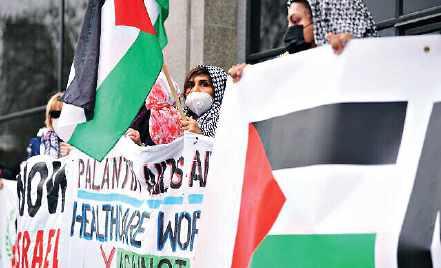
In a response to Rahmeh Aladwan, another doctor notorious for rants about “Jewish supremacy”, Kriesels said: “Virtually every Jew has some feelings of supremacy (result of their Zionist upbringing) and they might oppose Zionism, but they are not going to challenge their precious community. That just doesn’t feel right to them!”
Another read: “When one claims to oppose Zionism but goes on and on about their Jewish heritage and
Jewish millennia of persecution, one shows their feelings of Jewish supremacy, never mind they oppose the political ideology of Zionism. Jewish supremacy underpins Zionism.”
On the 7 October attack, the paediatrician said: “Some Jews ‘merely’ say it was a progrom [sic]. Other Jews ‘merely’ say that it was antisemitic. Always trying to frame the Jews as victims. So ridiculous,. So excruciating. So exhausting.”
A British doctor who resigned from the Royal Free Hospital after being suspended over social-media posts about the Israel-Gaza war, including allegedly calling Israeli soldiers “baby killers and rapists”, has raised more than £56,000 to pursue discrimination claims against the NHS trust.
Emergency medic Dr Nadeem Crowe was removed from a shift in August 2024 after managers flagged what they described as “potentially upsetting” posts. He says he was not shown the posts at the time and denies anything he wrote was antisemitic.
Crowe later resigned and filed claims for direct discrimination and harassment. According to his Crowd Justice page, a preliminary hearing in June 2025 allowed the two claims to proceed. A full tribunal hearing is reportedly set for June 2026.
Coverage in The New Arab reported managers raised concerns about posts in which
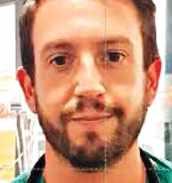
Crowe described the IDF as “baby killers and rapists”, while Novara Media cited a post in which he said the war in Gaza would “go down in Israel and Jewish history” as genocide. Crowe maintains his comments were political criticism and says he has never posted anything antisemitic.
He also alleges the trust’s disciplinary process is unclear and claims he was told to “bring a specialist on the conflict” to advise on what he was permitted to say online – a request he argues was inappropriate and discriminatory.
Crowe has previously said he believes NHS staff expressing pro-Ukrainian views faced no similar action, adding the response to his views amounted to unequal treatment. He says no complaint was raised with the General Medical Council.
A Royal Free spokesperson said: “We always try to support our patients, our communities, and our staff – many of whom have families and loved ones affected by the conflict.
“The extremism, violence, racism and antisemitism we’ve seen in our country has also meant many have felt afraid and unsafe.
“We ask that staff ensure content published online or elsewhere is consistent with the trust’s values and relevant professional codes of conduct.
“Where this has potentially not been the case, we’ve investigated and taken action ... our focus is to ensure everybody in our care and our staff feel safe and are treated equally.”
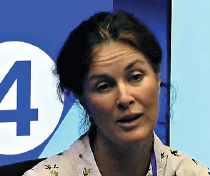
On Hamas members killed in Gaza, Kriesels said: “The non-civilians are Hamas and whether they are one percent or 18 percent of the Palestinians slaughtered, they should not have been killed either.
“Do not whitewash the murder of Hamas members. They are a political party and oppressed resistance fighters. NOT terrorists.”
Kriesels was suspended from her role at the Whittington shortly after the Jewish News story. The GMC had applied for an interim order of 18 months to allow a full investigation into Kriesel’s conduct, but the MPTS panel determined nine months was sufficient.
The tribunal identified risks were Kriesels to continue to practise, noting she “has to date neither removed the posts nor indicated she will not post further comments on X nor attend marches carrying placards which may invite different interpretations from her own. Therefore the risk is that the consequences to date will continue.”
The MPTS also noted a risk “colleagues will refuse to work with her or refer cases to her ... posing a risk of disrupting the care provided to patients” and “a GP might not refer a patient to her due to her views and the ethnicity of the patient”.
The tribunal said it had determined there are “concerns regarding Dr Kriesels’ fitness to practise which pose a real risk” to the public and which may adversely affect the public interest”.
The GMC said the tribunal “has agreed with our submission and suspended Dr Kriesels’ registration while we continue our investigation into her fitness to practise.
“Our focus is to complete our investigation swiftly, fairly and proportionately.”
‘Chilling’ for Jewish patients to fear NHS
Health Secretary Wes Streeting has said it is “chilling” some members of the Jewish community fear they may be “treated unfairly or discriminated against” in the National Health Service .
Streeting was asked on LBC’s Nick Ferrari programme about a General Medical Council (GMC) decision to issue only a formal warning to a paediatric trainee who posted antisemitic tweets but allowed him to keep his job.
The tweets included references to “Jew banker goblins” and “gas the Jews”.
Streeting said he had read media reports on the case and “my immediate gut reaction was unrepeatable on the radio at this time of the morning”.
Addressing the broader issue of rising antisemitism, Streeting acknowledged many Jewish people hold a negative view of the NHS.
“In my own constituency, which is very diverse and
includes a significant Jewish community, people are afraid,” he said. “People in the Jewish community fear they’re going to be treated unfairly or discriminated against in our National Health Service. That’s chilling.”
On the GMC case, Streeting said: “My understanding ... is that those social media posts were in response to other posts that have since been deleted.
“I’m relying on the findings of the investigation—I have not spoken to the doctor or seen the original material.
“I believe the defence was that he was mocking other inappropriate posts online.”
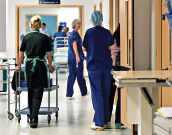
He continued: “This has been such a big story because we’ve seen undeniable, outrageous examples of vile antisemitism by people who identify as NHS doctors.
“Those people have forgotten not only basic humanity, but also their professional responsibility to patients. No one entering the NHS should feel afraid or question whether they will be treated fairly because of their race or religion.”
Streeting also confirmed he will stand again in Ilford North at the next election, despite a narrow victory last time.
“I’m not going anywhere,” he said, noting an “orchestrated campaign” to unseat him during the last election, when he retained his seat by just over 500 votes.
Addressing Labour leadership tensions, Streeting said he and Keir Starmer were in the “same boat,” describing the row as a “total distraction”.


















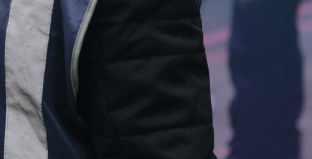
In recent years, CST has invested millions of pounds to strengthen security at Jewish schools, synagogues and other communal buildings. We have thousands of highly-trained security volunteers. We commit to protect our community, making it stronger in this crucial time of need.
The demand for our vital work is greater than ever. Stand with CST as we stand with you.
Please donate: Scan the QR code or visit cst.org.uk/together
The BBC has provided additional information about a page featuring its video of a senior UN representative incorrectly claiming in Gaza “14,000 babies will die in the next 48 hours unless we can reach them”, writes Daniel Sugarman. The action follows a Jewish News request for clarification by the broadcaster.
In May, UN under-secretary-general for humanitarian affairs Tom Fletcher told the BBC 14,000 babies in Gaza would die in a twoday period unless UN aid could get through.
The claim made headlines around the world – but when the BBC subsequently asked for clarification on the figure, it was directed to an Integrated Food Security Phase Classification (IPC) report.
This stated something very different – that 14,000 children aged 0-6 were at risk of severe acute malnutrition over the course of a year –not 48 hours – if food aid was not received.

news story which shows Fletcher’s claim was inaccurate, it does not specifically mention the inaccuracy, but manages to add a statement from the UN which avoided a direct answer on why Fletcher made the claim.
This says: “We are pointing to the imperative of getting supplies in to save an estimated 14,000 babies suffering from severe acute malnutrition in Gaza, as the IPC partnership [Integrated Food Security Phase Classification] has warned about.
“We need to get the supplies in as soon as possible, ideally within the next 48 hours.”
the BBC was aware was inaccurate, given its follow-up questions to the UN on the subject.
However, Prescott wrote that “despite this, Fletcher’s inaccurate claim was put to Israel’s UN ambassador Danny Danon on Newsnight. Why, when the BBC knew the suggestion was wrong?”
Prescott identified that in the same episode of Newsnight, the BBC ran a story about a Gazan baby, Siwar Ashour suffering from allergies and a congenital condition and at risk of severe malnutrition.
After Jewish News contacted the BBC, the corporation confirmed “we have added a note to the relevant page, making clear that the figures were later clarified”.
While the update does link to the BBC
Jewish News has now discovered a video of Fletcher making the claim was still available on the BBC News website – without any update as to the inaccuracy of his statement.
Two weeks ago, The Telegraph published a dossier from Michael Prescott, a former independent adviser to the BBC’s Editorial Guidelines and Standards Board, containing a large number of occasions where the broadcaster had shown anti-Israel bias.
One of the examples identified was connected to Fletcher’s inaccurate claim, which
“By the time of broadcast, the BBC already knew the story was out of date and that baby Siwar had received the necessary formula a week earlier, she was maintaining weight and had been discharged from hospital”, Prescott wrote in his report.
“None of that was revealed in the programme – meaning the BBC had broadcast another inaccurate story.”
Crossbench peer Baroness Ruth Deech has told the House of Lords the UK government’s recent recognition of Palestine as a state should affect the status of Palestinian refugees.
The peer, who is Jewish, claimed that with statehood recognised, Palestinians should be considered citizens of Palestine rather than refugees – and the concept of Palestinian refugees should be reconsidered.
Deech also called for the United Nations Relief and Works Agency (UNRWA) to be dismantled, alleging it perpetuates refugee status and is influenced by Hamas.
“Since the UK recognises Palestine as a state, its citizens cannot be refugees,” she claimed. “Indeed, all the other Palestinians around the world are, or should be, citizens of that state.”
On the relief agency, she said: “UNRWA continues to inflate the number of refugees instead of settling them, and teaches them that they will remain refugees until they return to their homes in what is now Israel, with the aim of obliterating the state.”
Raymond James, Golders Green together with Melinek Fine invites you to explore the outcomes of the Autumn budget and its impact on you.
16:00 – Wednesday 3rd December 2025 | Golders Green, London
For more information, call 020 8202 1944 or email us at GoldersGreen@RaymondJames.com
Visit our website at GoldersGreen.RaymondJames.uk.com or scan the QR code to register.
With investing, your capital is at risk. Tax treatments are subject to individual circumstances and are subject to change.
She added, “There will be no future for Gaza unless UNRWA is dismantled … and the concept of Palestinian refugees ... should disappear.”
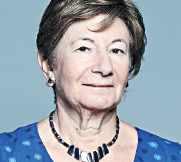
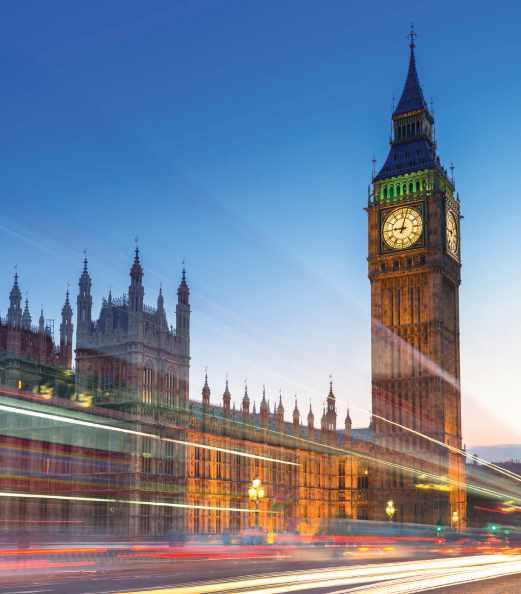
Thousands of people have rallied round a young family by donating £240k in one week after the parents of four-year-old Ra Starkowitz issued a desperate plea for help to save their little boy’s life after he was diagnosed with a brain tumour.
Bushey parents Neil and Nicky Starkowitz describe their son as “full of life — cheeky, funny, and kind” and a boy whose “smile lights up every room”. He has been accepted for treatment in America that could save him, but the family must somehow find £200,000 to get him there.
Neil Starkowitz, a 47-year-old IT project manager who moved from South Africa, told Jewish News how their world turned upside down.
“When this all started, Ra was full of energy, kicking balls, going to Rugby Tots every Saturday,” he said. “He loved helping around the house, in the garden, in the kitchen,; a real busy-body with lots of energy.”
But in March, everything changed after a call from Ra ’s nursery saying he was walking strangely.

The family assumed an infection. But, says Starkowitz, “a few days later, after tests and an MRI, our world came crashing down – Ra had a large brain tumour in his cerebellum”.
Known as the “little part of the brain”, the cerebellum’s primary function is to coordinate movement, including posture and balance. It also plays a role in motor learning and is increasingly being
researched for its involvement in cognitive functions like thought, emotion and social behaviour.
Rushed by ambulance to Great Ormond Street Hospital (GOSH), Ra deteriorated quickly – “he was just lying down, couldn’t sit up or do anything, and at one point we pressed the crash button because he had stopped breathing”.
Ra underwent a 10-hour emergency brain surgery but although the operation was successful and surgeons removed the whole tumour, the relief was short-lived.
Doctors found Ra had Group 3 large cell anaplastic medulloblastoma, a rare and aggressive brain cancer. Only a handful of children in the UK are diagnosed each year.
Ra has since endured more than any child should. Multiple rounds of intensive chemotherapy, weeks in hospital and six weeks of daily radiotherapy under general anaesthetic plus side e ects including sickness, fatigue, infections, hair loss and the skin on his head peeling.
His parents explained Ra ’s condition to him “in very basic terms. We told him he had a lump in his head and it had to be removed, and now he’s getting medication. Sadly, kids get used to situations, and he’s got used to having to go to hospital, people taking blood, giving blood and medications.”
Later scans showed no visible disease – and for the first time, the Starkowitz dared to hope. But Ra ’s type of cancer is aggressive.
Even with the best treatment, the risk of relapse is very high, and there are no preventative options in the UK – so the family are now fundraising to take him to the US to join a new two-year drug trial to treat high-risk medulloblastoma at Penn State Children’s Hospital in Pennsylvania.
“He’s already been accepted on to the programme,” Starkowitz said.
“Our only barrier now is funding. The total cost, including treatment, travel, insurances and accommodation, is estimated at around £200,000.”
Adding to the incalculable strain on the family, Nicky Starkowitz, a
paediatric nurse at Northwick Park Hospital, has now been diagnosed with Stage III breast cancer.
She has had surgery and is going through chemotherapy and radiotherapy herself — all while caring for Ra and his sisters, Ella, 10, and Talya, who is seven.
Writing on the fundraising page, which is now running at more than £240k from over 5,500 donations, Neil Starkowitz says: “Our family has been through unimaginable pain, but we refuse to give up. We’re doing everything possible to give Ra the future he deserves.”
Still having chemo, “which basically completely knocks you out, and afterwards Ra is really poorly”, the four-year-old has most recently been in hospital fighting multiple infections and is on several antibiotics.
“When you’ve got no immunity, you just get everything. The amazing thing is when he’s feeling well, he’s great. He still has that smile, running about and playing. He’s very brave, and we are so proud of him.”

AJEX held its annual Parade and Ceremony on Sunday, with more than 2,500 people marching down Whitehall to the Cenotaph to honour Jewish veterans and all those who have served in the armed forces, writes Michelle Rosenberg.
With many wearing family medals, the marchers were welcomed by crowds of spectators lining the route of the parade, which marked a landmark year: the 80th anniversary of the end of the Second World War, the 80th anniversary of the liberation of Bergen-Belsen and the 85th anniversary of the Battle of Britain.
AJEX national chair Dan Fox hosted reviewing officer Brigadier Melissa Emmett, defence minister Lord Coaker and Board of Deputies president Phil Rosenberg.
The parade was commanded by Jon Tyler and Lt Col Adam Shindler, with the Cenotaph ceremony conducted by Chief Rabbi Sir Ephraim Mirvis, Rabbi Major Simon Taylor and Rabbi Nathan Godleman.
Music was provided by the band of the Household Cavalry, supported by the JLGB marching band.
Lord Coaker, who laid a wreath in honour of all British service personnel who have died in conflicts since the Second World War, said: “It was a privilege to stand at the Cenotaph with Jewish veterans, their families, and young people from across the community.
“This parade is a powerful reminder of the immense contribution of Jewish servicemen and women throughout our country’s history. As we mark 80 years since the end of the Second World War, we remember their vital role in securing the freedoms we all cherish.
"It is our responsibility to ensure that legacy of service is never forgotten, and to stand in solidarity and gratitude with the British Jewish community, today and always.”
Holocaust survivor Peter Lantos, 100-year-old D-Day veteran and Bergen-Belsen liberator Mervyn

Kersh and Noé Group founding partner Zvi Noé jointly laid a wreath marking the 80th anniversary of the liberation of Bergen-Belsen.
RAF veteran Ivan Sugarman laid a wreath with Rob Rinder, remembering all those who fought in the
Holocaust survivor and Kindertransport refugee Vera Schaufeld has died at the age of 95, writes Michelle Rosenberg.
Born Vera Löwyová in Klatovy, Czechoslovakia, she came to Britain in 1939 on the Kindertransport, waving farewell at the age of nine to her parents on the train platform in Prague. They were unable to secure visas and she never saw them again.

She was met in London by a Christian family who cared for her and later moved to the Cotswolds.
After the war, Vera spent a year in Israel, where she met her husband Avram, a fellow Holocaust survivor. They returned to the UK, where she worked as a teacher and became deeply involved in Holocaust education.
She was made an MBE at Buckingham Palace in 2019 for services to Holocaust remembrance and education and, later that year, received an honorary doctorate from the University of Roehampton.
In 1988 she, together with other children, now adults, saved by Winton, was invited to participate in Esther Rantzen’s television programme That’s Life!, beginning a lifelong friendship with Winton and his wife Grete.
Association of Jewish Refugees chief executive Michael Newman said: “We honour the memory of Vera Schaufeld MBE, a true AJR stalwart and dedicated Holocaust educator.
“Within the AJR, Vera’s dedication was unfaltering; she generously shared her tes-
timony in our Refugee Voices archive, giving voice to her experiences as a Winton child and participated in many engagements, lectures, and educational events.
“Thank you, Vera, for your unwavering commitment, your strength, and your generosity. Your voice, your memory, and your spirit will continue to inspire all of us in the AJR — and beyond — for generations to come.”
Holocaust Educational Trust chief executive Karen Pollock added: “Vera was an extraordinary woman whose gentle and kind nature touched everyone who had the privilege of meeting her. Vera turned her experience of profound loss into a lifelong commitment to education, understanding and hope.
“Through her testimony in schools and colleges across the country, Vera shaped how generations of students understand the Holocaust and its lessons for today. We will miss her kind smile and gentle nature.”
Holocaust Memorial Day Trust chief executive Olivia Marks-Woldman also paid tribute, saying: “[Vera was] a wonderfully kind and gentle woman who contributed so much to Holocaust education after her active working life.
“Vera has left an indelible mark on me, as she has done on all those she met. She has always been a strong voice in support of our promotion of Holocaust commemoration and education.
'Our thoughts are with her family at this difficult time. We will continue to honour her legacy through our work.”


Battle of Britain on its 85th anniversary while the AJEX national wreath was laid by Brigadier Emmett in memory of all Jewish personnel who have died in the service of the Crown.
Speaking to Jewish News, actress Maureen Lipman, whose first husband Jack Rosenthal was a veteran of the Merchant Navy, said: “I think we realise more and more how much we owe to our servicemen.
"It’s important that people understand and remember what they sacrificed for us."

He sits in a café in north-west London, speaking almost casually about shrapnel in his skull, the colour of blood on a kindergarten floor, and the moment he believed “statistically, we shouldn’t have made it out alive”. Not once does his voice crack, writes Annabel Sinclair.
“I will never forget the feeling of metal, the shards piercing. It’s hot and cold at the same time.”
That moment came in November, inside Gaza, when a Hamas bomb detonated beside him. Minutes later, as medics dressed the wounded, an ambush began.
“By military definition, we were in a death box. They had us cornered from all sides. It was either us or them.” Had he not refused to walk his
full reservist team into the building seconds earlier, all 24 would likely have been killed. He calls it luck. His medical team call it survival against odds most do not beat.
He was not even meant to be in Israel. Like thousands of released veterans, he had gone travelling, trekking in Nepal. “I only connected to reality at around 9 o’clock Nepal time. It felt like the worst joke someone could pull. You don’t fathom something like this could ever happen.”
He and three fellow o cers hiked across the mountains, bribed helicopter pilots and slept in a Dubai airport. “It was like The Amazing Race –just in the worst possible conditions, and not a million dollars at the end.”
Within hours of landing, he was
back in uniform. “You just go back as if you never left. It’s muscle memory.”
He lost five friends on 7 October alone. “Some from service, and some at the Nova party.”
He breaks eye contact only once, recalling the clearing of ruined kibbutzim. “The first time I broke down was when I saw a bloody footprint. Someone was shot, bleeding constantly, ran to a safe room. The door was broken through. There was a puddle of blood on the other side. They sat there and bled to death.”
Evacuated by helicopter, he remembers being “freezing cold” and “very high” on medication.
He called his girlfriend before surgery. “We hadn’t spoken for two and a half weeks. I said, ‘Hey it’s me’. She
said, ‘Oh hey, what’s up?’ Like nothing had happened.”
He underwent brain surgery to remove shrapnel and later surgery for hearing loss. “My physical rehabilitation ended four months after. Emotionally, I’m still going through it.”
His real recovery began at Beit Halochem, Israel’s rehabilitation organisation for wounded veterans.
“It’s one of those things you don’t want to know exists until you need it. My girlfriend’s brother is a disabled veteran. He literally grabbed me and said ‘You’re coming with me’.”
“You feel like you have a safe space. A bad day, good day, confusing day –you have somewhere to go.” He goes every day. “Sometimes just to work out, sometimes for co ee. But most
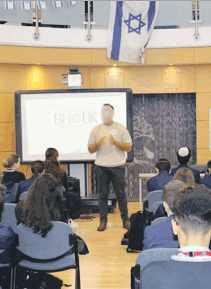
importantly, you’re not alone.”
Beit Halochem UK director
Spencer Gelding says more than 17,500 newly injured veterans have joined the charity since 7 October, bringing the total close to 70,000.
“That’s the number people forget,” Eytan says. “Their conflict may end –but their battle is just beginning.”

The latest round in Professor David Miller’s fight with Bristol University has begun at the Employment Appeal Tribunal (EAT) in central London, writes Jenni Frazer.
A three-person panel presided over by Lord Fairley KC, the EAT president since February 2025, was been holding a threeday appeal by the university against the political sociology professor’s win in 2024.
Miller took the university to an employment tribunal in February last year claiming he had been discriminated against and unfairly dismissed by Bristol in 2021 because of his anti-Zionist beliefs. The hearing followed a long-running battle with Jewish students at Bristol, and Miller’s repeated attacks on Israel and Zionism.
The tribunal ruled in Miller’s favour and said for the first time anti-Zionism was a “protected” belief under the 2010 Equality Act. The tribunal determined while some of
the professor’s comments were “ill-judged”, they did not constitute unlawful speech, were not antisemitic or incite violence.
In addition, while the tribunal found Bristol’s decision to dismiss him “disproportionate”, it reduced his potential compensation by 50 percent due to what it called his own “culpable and blameworthy” conduct in singling out students for criticism.
Now, both the university and Miller himself have appealed against the tribunal’s decision. The university is contesting the ruling that he was discriminated against and unfairly dismissed, while Miller is challenging the rulings on “contributory fault” which reduced his compensation.
The EAT panel heard a claim there were “almost 40 errors of law” in the 2024 Employment Tribunal decision, which runs to more than 100 pages.
Chris Milsom, appearing for the univer-
sity, giving the panellists indicators of some of the problems in last year’s ruling.
Many of the issues brough out relate to how a protected belief is “manifested” — in other words, though a belief itself may be legal, it is the way it is expressed which can cause a problem.
Lord Fairley repeatedly asked: “Where does one draw the line?”
The EAT president asked Milsom if he was suggesting the question marks were not over the evidence which has been heard by the Employment Tribunal, but rather over “evidence which the university says ought to have been considered”.
The EAT is the second stage in a potential four-tier process in the case.
Miller has the right if he chooses to do so to go to the Court of Appeal and then on to the Supreme Court. Judgment in the case is not expected until early next year.

Senior rabbis from the Orthodox, Masorti and Progressive movements are backing calls for the Jewish community to confront the reality of domestic abuse during next weekend’s Jewish Women’s Aid (JWA) Shabbat, writes Michelle Rosenberg.
The annual event, which focuses on reflection, education and action, aims to raise awareness of the ripple e ects of abuse. It coincides with the International Day for the Elimination of Violence Against Women and the 16 Days of Action that follow.
Three rabbis will deliver targeted sermons, while JWA sta and volunteers will run information stalls outside kosher bakeries and shops – locations often used by women buying challot for Shabbat – to o er a discreet point of contact.

He said: “Over the years, the community has started openly talking about domestic abuse; but it’s not easy to talk about and does happen behind closed doors.
“We know that when we openly talk about domestic abuse, victims come forward. Openly talking about it helps victims realise, ‘I am actually experiencing this abuse’. We’ve encountered domestic abuse cases across all ages – from young women in their late teens to someone who outwardly seems to have been ‘happily married’ for decades.”
pains and pressures experienced by victims of domestic abuse and the circles of pain that stretch out from that,” he says. “I think the issue is still taboo to even discuss for many.
“Victims too frequently feel tremendously ashamed – when they are not at fault – and perpetrators too frequently feel they deserve to be forgiven or accepted, even if they show no genuine accountability or remorse for their actions.” He added: “There’s really no excuse for a rabbi not to be proactive when they know about a domestic abuse situation.
Rabbi Elchonon Feldman, senior Rabbi at Bushey United Synagogue, has led the congregation made up of more than 1,500 families since 2016.
in unhealthy relationships to sharing their stories around historic abuse.
Rabbi Jeremy Gordon, of New London Synagogue and deputy designated safeguarding lead, has also had conversations with victims.
Rabbi Feldman says over the years he has supported people a ected by domestic abuse, from young women
In some cases, he says he signposts them to JWA – in others, to the emergency services.
He recognises the “great pain” caused by abuse and says “rabbis need to be braver” in openly addressing it.
“I’m well aware of the awful




The Chief Rabbi has condemned what he has described as a churchman’s “incendiary and morally inverted accusation” after the Archbishop of York described Israel’s actions in Gaza as “genocidal acts”.
Stephen Cottrell made the accusation in an interview with Church Times, saying the Israeli campaign was “genocidal acts, rather than genocide”.
He explained: “These appear to be deliberately indiscriminate,” but he stopped short of using the broader term “genocide”.
The archbishop went on: “When hospitals and schools are targeted, when children are targeted . . . I wonder what other language we use to describe what is happening.
“And again, I make it clear that this is the actions of the Israeli state, and for people of faith – be they Jewish people, Christian people, or Muslim people – we must find a way for people to live in peace with one another.”
Responding to ther interview, Chief Rabbi

Ephraim Mirvis said: “The Archbishop of York has spoken of the need to be ‘painfully honest’ about the conflict in Israel and Gaza.
“But it is simply not possible to do that without faithfully seeking to understand more than one perspective.
“It saddens me greatly that his irresponsible approach, reaching for the incendiary and morally inverted accusation of ‘genocidal acts’, will serve only to foster yet more enmity
and division. I will be writing to the Archbishop to set out my concerns in detail.”
Rabbi Charley Baginskey and Rabbi Josh Levy, co-leads of Progressive Judaism also joined the debate, saying: “In the UK, statements about Israel-Palestine have real consequences for communities of faith, where Palestinian su ering and rising antisemitism are deeply felt.
“Moral clarity must always be paired with social responsibility.
“The language used inflames tensions and shuts down dialogue instead of promoting justice and understanding.”
The Jewish Leadership Council said: ”We are deeply disappointed by the the Archbishop of York’s choice of language. In particular, his accusation of “genocidal acts” is not only a factual error, but a perverse distortion of a conflict initiated by a terrorist group which seeks the destruction of the Jewish state through indiscriminate murder.”
“Under the United Synagogue, we all undergo regular training, and a prime element is understanding domestic abuse and sexual violence to ensure we’re not protecting perpetrators or discrediting victims, which would be deeply wrong.”
• Opinion, page 21

Dr Alan Mendoza announced he has left the Conservative Party after 30 years to join Reform UK.
Mendoza, founder and executive director of the right-leaning Henry Jackson Society and a Conservative councillor in Westminster since 2022, said he was “proud” to be defecting to Reform.
He will advise Nigel Farage and the party on foreign policy and geopolitics.
Mendoza said: “In Reform UK, we finally have a party that will put our interests first and ensure our tomorrow is better than our today. This is the party I’m proud to join – one that will bring change the nation can be proud of, and restore us to the first rank of global powers.”
On X, Mendoza, also a board member of the S&P Sephardi Community, described his decision to leave the Conservative Party after three decades as “di cult”.
Farage welcomed Mendoza’s appointment. He said: “His intricate understanding of foreign policy and experience in global a airs is invaluable.
“I look forward to working closely with him as we shape our policy platform in the months and years ahead.”
Former Israeli prime minister Ehud Olmert was prevented from speaking at the Oxford Union on Sunday, after protesters blocked the entrance to the debating society’s building, as well as invading the union’s premises itself, writes Joy Falk.
Security were forced to physically eject protesters from the union’s grounds, with the entire event cancelled as a result. Some of the antiIsrael protesters present painted their hands red to symbolise the accusation that those attending the event had “blood on your hands”.
For those with actual knowledge of the Israeli-Palestinian conflict, however, red hands symbolise the lynching of two Israelis by Palestinians in the West Bank during the second intifada, with one of the murderers holding up bloodied hands to the acclamation of crowds outside the building where the killings took place.
Those ejected screamed about “complicity in genocide” and chanted “from the river to the sea”; Olmert has been a vocal public critic of the current Israeli Prime Minister, Benjamin Netanyahu.
The incident comes days after the debating society voted to support the notion that Israel was “a greater threat to regional stability” than Iran, with speakers including the executive director of UN Watch, Hillel Neue, who told the crowd he “hesitated before agreeing to debate this evening”. He said: “To do so risks dignifying a proposition so disconnected from basic facts that it verges on the satirical: that Israel, of all states, poses a greater threat to regional stability than the Islamic Republic of Iran. But we now live in an age where people will believe almost anything.
“Nearly one in four people in this country aged 18 to 34 believe that the 7/7 terrorist attacks were ‘probably a hoax’. And here in this Oxford Union, we saw just three weeks ago that no less than 501 members believe it is right to vote in support of the incoming president after he had publicly celebrated the killing of Charlie Kirk.”
Two of Neuer’s opponents on the evening were former prime minister of the Palestinian Authority, Mohammed Shtayeh, and Iran’s
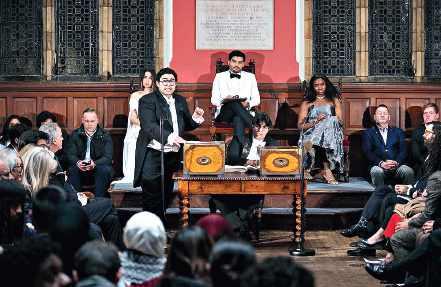
former minister of culture, Ata’ollah Mohajerani. Shtayeh referred to Israel as a “pariah state” and said that some of its lawmakers believe its borders should extend from the Nile to the Euphrates.
Neuer, who detailed the Iranian regime’s interference in Lebanon, Syria, Iraq and Yemen, called out Mohajeranie for statements appearing to publicly justify the fatwa against author Salman Rushdie.
Neuer said: “I would be remiss not to mention that a human rights lawyer from this university, from Oxford, has filed a complaint and legal dossier with the police against my opponent in this debate, Mr. Ata’ollah Mohajerani, for his role in the assassination of dissidents.
“Moreover, the complaint points to Mr Mohajerani’s 1989 book, A Critique of the ‘Satanic Verses’ Conspiracy, in which he endorses and
justifies the fatwa issued by Ayatollah Khomeini in 1999 against the famed novelist Salman Rushdie, who was stabbed 15 times in 2022 – as a result, presumably, of this fatwa
“Mr Mohajani writes in his book that Rushdie is ‘an absolute apostate, and the punishment of an apostate is execution’. And so, Mr Mohajarani, tonight you say you stand for regional stability, but you have once blessed the idea that an author, a citizen of this country, should be killed for writing a book.
“So please tell this house: Do you still believe that writers deserve death, or will you finally retract and renounce your support for that fatwa?”
According to Neuer, Mohajani failed to answer the question.
The Oxford Union members present are understood to have voted in support of the idea that Israel was a greater threat to regional stability than the Iranian regime. Neuer’s organisation, UN Watch, said that “the outcome was known in advance”.
Last year, the Oxford Union voted that “Israel is an apartheid state responsible for genocide” by a majority of 278 to 59.
Jewish human rights organisation René Cassin has issued a stark warning about Britain’s future relationship with the European Convention on Human Rights (ECHR), as leading legal and community figures gathered in London last Wednesday to mark the treaty’s 75th anniversary.
The event – Human Rights: A Compass – also highlighted 25 years of the Human Rights Act and the upcoming Human Rights Day, framing the postHolocaust human rights system as a distinctly Jewish moral inheritance.
Chairing the discussion, Professor Francesca Klug OBE, one of the UK’s foremost experts on the Human Rights Act, cautioned that the UK was edging towards unprecedented isolation.
“The entire post-war international human rights architecture is hanging in the balance,” she said. “We are the only country contemplating leaving the ECHR – joining a
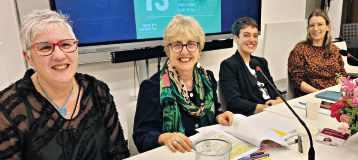
club with Belarus and Russia.”
Attorney general Lord Richard Hermer KC, who was unable to attend in person, sent a message emphasising the Jewish roots of the modern human rights movement.
“I take pride as a Jewish lawyer in the legacy of René Cassin and your organisation,” he wrote. “When law is not respected, minorities suffer.”
Human rights barrister
Martha Spurrier, formerly director of Liberty, told attendees that political rhetoric did not reflect public sentiment. “Most people in the UK do not want to abandon
our human rights obligations,” she said. “At a time of war in Europe … losing what we have would be catastrophic.”
Karen Lewis of Jewish Women’s Aid warned that failures by statutory bodies were not only procedural lapses but also breaches of individuals’ rights. She said: “When public bodies fail to act, they overlook not just distress but human rights.”
Founded in honour of UDHR drafter René Cassin, the charity positions Jewish history and values at the heart of its campaign to safeguard universal rights in Britain.

The family of British-Israeli soldier Benji Needham, killed in Gaza nearly two years ago, have launched a £250,000 campaign for a memorial healing space overlooking the landscape he loved, writes Annabel Sinclair.
Needham, 19, was serving in the IDF when he was killed defending Israeli communities during the early months of the war. His siblings have unveiled plans for ‘Benji’s Light Point’, a lookout in Zichron Yaacov designed as a remembrance project and a therapeutic setting for those affected by conflict.
The fundraising effort is being run by teams in Israel and the UK, each operating their own pages that feed into the same central campaign total. At the time of writing, the campaign stands at around £106,000.

One of the UK-linked pages, led by Benji’s sister Yael Schlagman, has raised more than £16,000 towards her internal target of £25,000.
The planned site will host youth programmes, volunteer days, therapy activities and gatherings for bereaved families, while also offering a quiet space “to pause, breathe and feel Benji’s presence”, relatives said.
The family described the vision as “a living and breathing memorial continuing Benji’s values of connection, kindness and service”.
The lookout is expected to open next year, subject to funding and planning approval.
u Benji’s Light Point: www.charidy.com/ b2i/101

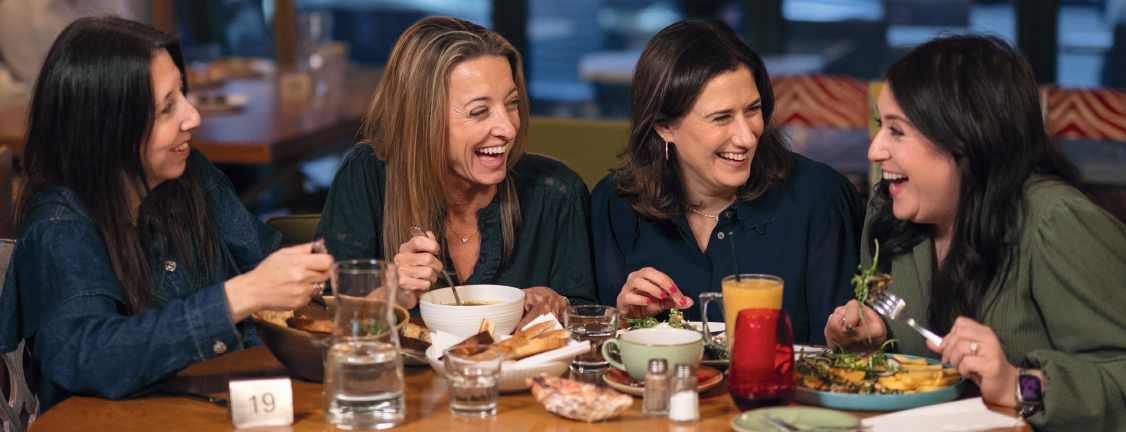
There’s only one thing better than a good catch up with friends –and that’s doing it over a delicious breakfast, brunch or lunch at Head Room, our kosher café in Golders Green. Every visit supports Jami’s mental health services in the community. To view the menu, book a

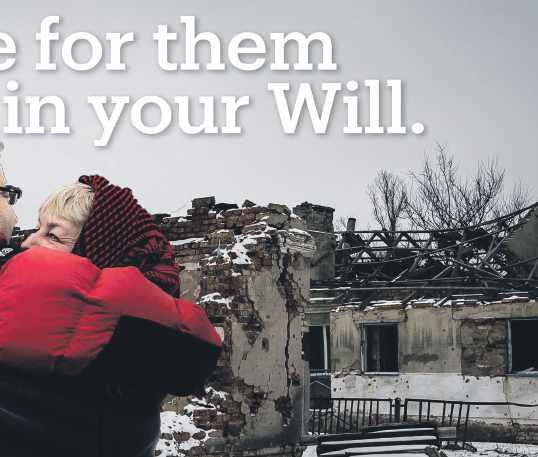
can be there for them every step of the way with a gift in your Will. To find out about how to leave a gift and our FreeWill service please contact Richard Budden, Head of Individual Giving and Legacies.









Leaving a charitable legacy in your will is a way to sustain Jewish life for generations to come, as this special awareness month highlights

As a people, we have always drawn our strength from one another. Generation after generation, our parents and grandparents built the foundations of the Jewish community we cherish today – our synagogues, schools, welfare organisations and cultural centres.
Now it’s our turn to think about the legacy we’ll leave behind.
This November is Jewish Legacy Awareness Month, a chance to reflect on the power of one simple but life-changing act: leaving a gift in your will to a Jewish charity. It’s not about wealth – it’s about love, memory and responsibility.
Jewish Legacy is a consortium of more than 30 Jewish charities working together to encourage and empower people to support the causes that matter to them through their wills. The initiative helps individuals identify

the organisations they care about most and make a lasting impact by including those charities in their final wishes.
There are three simple steps to leaving a charitable legacy:
1. Think about the causes that matter to you and your family.
2. Speak to a solicitor or adviser to add a bequest (gift) to your will.
3. Let the chosen charity know – so it can thank you and plan for the future.
During our lifetime, many of us would love to give more than circumstances allow.
A legacy gift can sometimes be the most significant donation a person ever makes – and it can transform a charity’s work for decades to come. For charities, legacies provide long-term security and make large projects or ongoing services possible.
For example, £1 in every £3 raised by

Jewish Blind & Disabled (JBD) comes from legacy gifts, helping to provide life-changing housing and support for people with physical disabilities or vision impairments.
“These legacies have transformed lives,” says Rachel Barres, the organisation’s director of fundraising.
Kisharon Langdon chief executive Richard Franklin says: “Rising costs and growing demand make legacies more vital than ever.
“Your legacy, of any size, will help ensure we can support people in our community now and for generations to come.”

Over a quarter of Jewish Care’s fundraising income comes from future gifts that people included in their wills. Jewish Care chair Marcus Sperber says: “Giving and building something lasting, of thinking beyond ourselves, is at the heart of planning for the future by leaving a future gift.
“They ensure that we can continue to provide services that receive no government funding, including the Holocaust Survivors’ Centre, dementia support services, our community centres and Jami – supporting children from 11 years old through to adults and older people with mental health needs.
“All these vital services are made possible thanks to gifts in wills.”
By planning for the future, you will also be doing something incredible in your lifetime and beyond.
Every legacy – whether large or modest –helps to:
• Care for the most vulnerable in our community
• Educate and inspire the next generation
• Preserve Jewish life, values, and heritage for the future
As Jewish Legacy Campaign Chair Anthony Broza reminds us: “Together we are stronger.” Leaving a legacy is a way to say: “I was part of this story – and I want it to continue.”
A gift in your will allows your values to live on. It ensures that the compassion and generosity that define our community continue long after we’re gone – for our children, and for generations still to come.
u To learn more, visit www.jewish legacy.org.uk or email Gina Ross gina@jewishlegacygiving.org.uk
comment and letters to the editor
To many of us, the answer to the above question, in its simplest form, is “the belief the Jewish people have a right to a state in their historic homeland”.
But new polling from the Pears Foundation shows the general British public appear to have no idea what Zionism is. That is made clear by the fact that while a majority of British people would appear to agree with that statement, only a small percentage of them would describe themselves as “Zionists”.
By contrast, while a significant minority describe themselves as antagonistic towards “Zionists”, far fewer describe themselves as opposed that statement – the core of what Zionism is.
What this shows is how successful a range of anti-Israel voices and institutions, from local grassroots projects all the way up to and including the United Nations itself, have been in warping and twisting the idea of Zionism in the public mind.
Many of us are perplexed at how so many people appear hostile to the concept of the Jews having a country in their historic homeland. Now we know why – they simply do not equate that with “Zionism”.
Those of us who are staunch Zionists may have a choice to make. Do we continue to fight against those who would seek to distort the word “Zionism”? Or do we instead describe ourselves as “supporters of Jewish self-determination”?
Would such a shift upend the narrative which has been allowed to develop, or would it be surrendering the field to our foes? Such questions may be worth considering.
Production
jewishnews.co.uk
jewishnews.co.uk
Jewish News’ openness to publishing welcoming narratives about refugees is applaudable. With hostility on the rise – including, sadly, within our own community – this newspaper’s platform is vital. Your willingness to condemn the all-too-often racist discourse of the populist and far-right is both courageous and a crucial part of our communal dialogue.
With that, however, I would express concern about some of the language in Richard Ferrer’s recent opinion piece (The Ministry Of Truth?, 13 November). Regardless of the intention, the phrase “illegal migrants” risks stigmatising people fleeing dangerous regimes or conflict in countries like Iran, Sudan, and Afghanistan. Many of the
The scandal over the BBC’s editing of Donald Trump’s words has precedent. In One Day in Gaza (May 2019), the corporation mistranslated the Arabic “Yahud”, “Jews”, as “Israelis”, turning antisemitism into political grievance. Other reports have drawn criticism for mistranslation, selective editing and distorted framing of Jewish and Israeli issues. This same sickness now sees the BBC accused of doctoring political footage. When truth is sacrificed to ideology, the result is moral inversion – turning a victim into a villain and a terrorist into a “militant”. Then, as now, the BBC decided who deserved moral protection and who did not. Until it commissions an independent inquiry into how such distortions are allowed to happen, its claims of impartiality will remain as hollow as its subtitles.
Eli Cohen, NW11
8148 9700
@jewishnews.co.uk
8148 9693
@jewishnews.co.uk
8148 9697
@jewishnews.co.uk
WEEKEND'S SHABBAT TIMES...

Shahar 020 8148 9694
@jewishnews.co.uk
Sales and Events Director Beverley Sanford 020 8148 9709 beverley@jewishnews.co.uk
young people we work with at HIAS+JCORE had no choice other than irregular journeys to escape the dire situations they faced.
We are proud to help them to rebuild and integrate as they start again in the UK.
We may differ on the best approach on migration – although I’m sure we all agree on the need to end dangerous Channel crossings – but I would argue that it is critical that we keep our language respectful and compassionate.
Some might dismiss this concern as ‘woke’ or naive. But language matters. As Jews, we should surely understand that.
Rabbi David Mason Executive Director,
HIAS+JCORE
I write to express deep disappointment in your publication promoting a blanket impression of faux outrage in poorly researched articles about the current position and impact of Tommy Robinson on Israel, and British challenges with immigration and antisemitism, with pearl clutching by loony lefties who (self) promote trendy and inherently antisemitic interfaith green garbage “alliances”.
Tommy, whatever you think of his past, today supports our beleaguered homeland.
Some balanced reporting on this matter would be welcome, because right now, all I have seen written against Tommy by your publication would not even pass the sniff test on tiktok.
So please consider being the Jewish News and not the Hate Anyone Speaking Truth News.
Shelley SC, By email
The mother of the English actress, the late Samantha Eggar, has been described in obituaries as being of Dutch and Portuguese extraction and Roman Catholic. Victoria Louise Samantha Eggar was, in fact, daughter of Muriel Olga Pallache-Boumak, a descendant of an Ashkenazi father and
mother of Sephardic ancestry. Muriel’s mother was a member of the Pallache family. Expelled from Spain in 1492, they ultimately settled in Amsterdam.
Samantha’s career included a Best Actress Oscar nomination, Shakespearean theatre, and feature and TV films, including a leading part in Doctor Dolit -
Thank you for helping to make Jewish News the leading source of news and opinion for the UK Jewish community. Unlike other Jewish media, we do not charge for content. That won’t change. Because we are charity-owned and free, we rely on advertising to cover our costs. This vital lifeline, which has dropped in recent years, has fallen further due to coronavirus.
Today we’re asking for your invaluable help to continue putting our community first in everything we do. For as little as £5 a month you can help sustain the vital work we do in celebrating and standing up for Jewish life in Britain.
Jewish News holds our community together and keeps us connected. Like a synagogue, it’s where people turn to feel part of something bigger. It also proudly shows the rest of Britain the vibrancy and rich culture of modern Jewish life.
You can make a quick and easy one-off or monthly contribution of £5, £10, £20 or any other sum you’re comfortable with. 100% of your donation will help us continue celebrating our community, in all its dynamic diversity.
Support Jewish News by visiting our donor page at jewishnews.co.uk


tle . She married Jewish actor Tom Stern, and her daughter, actress Jenna Stern, has always strongly identified with her Jewish background.
Samantha passed away on 15 October, at the age of 86.
Doreen Berger
The Jewish Genealogical Society of Great Britain
















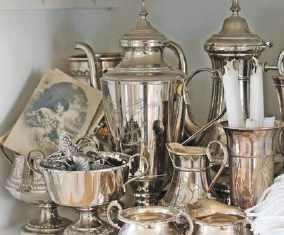
•
•
•
•
•





It’s hard to believe we’re about to celebrate 20 years of Mitzvah Day.
For those of us who take part every year, those two decades of interfaith and community action have gone by in flash.
On the other hand, Mitzvah Day has become such an important fixture in our communal calendar it feels like it has been around forever.
Whether it’s planting bulbs with Methodist and Muslim leaders in Finchley, tea parties with the elderly to combat loneliness, or joining ProjectIMPACT last year to prepare food for Homeless Action Barnet, Mitzvah Day has become a staple of my Jewish life.
This year, I will be at Alyth Synagogue, taking part in one of 100 Mitzvah Day Big Soup Serves happening in the UK, and around the world, to support food banks, hostels and shelters alongside senior rabbis, bishops and imams and congregates of di erent faiths.
But the importance of Mitzvah Day goes
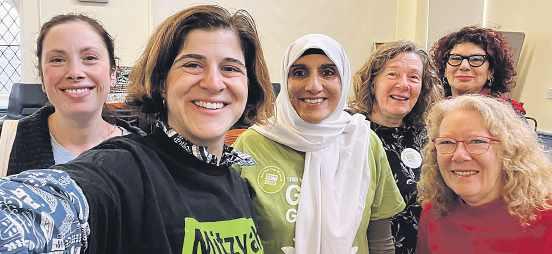
beyond just those we can help on Sunday 23 November. It is also about showing positivity and pride in being Jewish.
The last two years have been a di cult time for all of us. With antisemitism on the rise, we have felt our sense of safety erode. But we can never let those seeking to do us harm define us as British Jews. Amidst the struggles we face as a community, we must
resist the urge to turn inwards. Mitzvah Day is the antidote. It forces us to turn outwards, to seize the opportunity to build bridges across faiths even when –perhaps especially when - it is hardest. It enables us to amplify the wonderful work our community does. It galvanises our year-round dedication to tikkun olam, repairing the world by giving us the opportunity to bring in new
people, connect with new charities and reach out to wider society with generosity.
For the last 20 years, it has given us the opportunity to showcase Jews collecting for the homeless, supporting refugees, tidying parks and cemeteries, and spending time with people who may be isolated or lonely. This is what we do – it is part of our DNA.
While some people feel justifiable anxiety over showing their Jewishness, Mitzvah Day continues to bring people together which has been shown to reduce prejudice and build social cohesion. Mitzvah Day encourages us to live out our Jewish identities and get back to basics even in a challenging world.
For me, the value of Torah im Derech Eretz and helping our neighbours defines my Jewish identity. Those Mitzvah Day values of Tikkun Olam – repairing the world, Gemilut Chasidim – acts of loving kindness, and Tzedek – Justice, are my values too. That’s why, this year, once more I’m going to be putting on my green T-shirt. I’m going to be standing side-by-side with my Jewish constituents as collectively we reach out to wider society and show the very best of our community, in action.
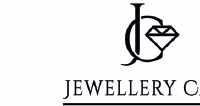










What does Shabbat mean to you? For many, it marks the transition from weekday to rest and refocus. It may mean time in synagogue, family and food, prayer over candlelight, or conversation around a Friday Night table. For others, it o ers reflection, meditation and gratitude: a quiet walk to synagogue or stillness after the intensity of the week. But unfortunately for far too many women and children, that peace does not exist. For me, Shabbat carries its traditional associations, but next week’s JWA Shabbat (28-29 November) comes with another layer. It is a moment to raise awareness of the work we do at Jewish Women’s Aid (JWA) and to focus on those at the heart of our organisation. As the UK’s sole specialist service supporting Jewish women and children affected by domestic abuse and sexual







violence, we know that a peaceful Shabbat is not something everyone can take for granted.
This truth was recently brought home to me again in a moving conversation with a remarkable rebbetzin. She told me about a woman she had been supporting in her community who confided: “I was in shul for JWA Shabbat last year, and remember sitting there thinking: ‘They’re talking about me’.
A year later, she finally felt strong enough to seek help. This is why we do JWA Shabbat.
It is about planting a seed and allowing that moment of recognition for women and their families, helping each of us reflect on how to stop the ripple of domestic abuse. That rebbetzin played her part by inviting JWA into her community and offering a safe space for women to come forward.
Across the UK, one in three women experience domestic abuse and one in five experience sexual assault. Jewish women are equally affected but they tend to remain in abusive relationships significantly longer than non-Jewish women, often for twice as long. Many delay seeking support until the abuse reaches a crisis point, often due to
fears of stigma, cultural expectations or not being believed. These hard-hitting realities must be acknowledged.
That is why, next week, over JWA Shabbat, we are encouraging the entire Jewish community to consider what we can do to stop the ripple of domestic abuse. Our resources invite people to think about how we can support those living with abuse and how every one of us plays a part in creating a safer community. As last year, while people shop for challot ahead of Shabbat, they will see JWA stalls with staff and volunteers outside kosher bakeries and shops across the country. These stalls provide a safe, gentle space for conversation, sometimes leading to a woman coming forward. Participation may mean taking materials home, raising the issue at the Shabbat table, or simply being more aware. Each of these actions matters beyond what we can measure.
That is why understanding the ripple effect of abuse is so important. Abuse never affects only one person. Its impact spreads outward, affecting children who live in homes filled with tension or fear, friends who
notice signs but do not know how to help, and teachers, youth workers and professionals who sense distress but cannot act without disclosure. It affects neighbours who hear arguments, colleagues who notice shifts in behaviour, and whole communities whose values are shaken when suffering is hidden in plain sight. When our community addresses abuse directly, supporting victims and preventing unhealthy relationships through education, we disrupt that destructive ripple. Every JWA Shabbat, women come forward because they hear their rabbis speak, see volunteers in the street and because they witness the community confronting abuse directly. Breaking silence and stopping the ripple effect of abuse really does save lives. Demand for JWA’s services is rising and the responsibility to act rests with all of us. So let us begin around the Shabbat table, offering space and time to the most vulnerable women and children in our community.
Jewish Women’s Aid helpline: 0808 801 0500. Email: advice@jwa. org.uk. Website: www.jwa.org.uk


Learn from Resource experts how to highlight your


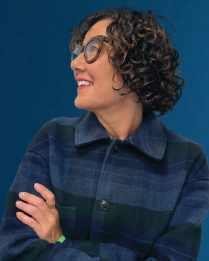

Baroness Ros Altmann CBE will share her insights on the current job market and the value of the older worker.

TREVOR ASSERSON
FOUNDING PARTNER, ASSERSON LAW
Last week’s departures of Tim Davie and Deborah Turness from the BBC were a trick to deflect critics from dealing with the true rot at the core of the institution. It has been tried before and it worked.
The BBC has been investigated properly only twice. Once it was by the damning Hutton Report in 2003, initiated by the then-Labour government, which showed the BBC had invented evidence to criticise the decision to enter the Iraq War; and then by the Dyson Report in 2021, which uncovered the BBC’s deceitful tactics to lure Princess Diana into an infamous Panorama interview.
Both reports, which were led by senior judges, found the very institution set up by the BBC as an internal watchdog – its Board – had failed to do its job. Instead, it protected the BBC, concealing, lying and obfuscating.
On both occasions, senior heads rolled

while BBC internal procedures that permitted dishonest reporting remained in place.
It seemingly takes royalty or the prime minister to compel a proper investigation. Now an internal whistleblower has shown what previously only the most powerful forces in the land could uncover, namely that the BBC is failing to meet its public obligations.
As before, the BBC finds senior heads to roll, distracting the public’s attention from the underlying problem. Indeed, the departures of Davie and Turness are described as noble acts of falling on swords in a bid to take responsibility for “mistakes”. This itself obscures the depth of BBC depravity in two ways.
First, the editing of President Trump’s speech was clearly no mistake. The editor carefully selected phrases separated by 54 minutes to amplify a story that Trump urged supporters to attack Congress – a story which the editor must have known to be false.
This is the BBC making up the news in its own image – and then choosing to cover it up. Nothing was done at the time to investigate and dismiss all those journalists who were implicated in broadcasting such a dangerous
falsehood. Nor is there any indication now that they will face the music.
Neither letter of resignation made any direct mention of the second scandal which emerged simultaneously, again from a whistleblower, namely the deep bias running throughout the BBC Arabic service. Both Davie and Turness disgracefully insist the BBC is complying with its obligations of impartiality and that the widespread allegations of bias are wrong.
All the evidence points the other way.
My own report, published in September 2024 with computational neuroscientist Dr Shani-Narkiss, demonstrated that BBC Arabic was hopelessly partial, broadly aligning with Al Jazeera in its sympathies.
It broke, and continues to break, BBC guidelines with almost every word it utters.
To illustrate, our analysis showed more than 90 percent of BBC Arabic web articles and videos exhibited pro-Palestinian or anti-Israeli sentiment, including on 7 October itself.
In a sample of more than 200 BBC Arabic interviewees, more than a quarter were found to have connections to Hamas or a liated terror groups and/or had posted antisemitic
rhetoric online, including support for the 7 October attacks.
The BBC should not give a platform to terrorist supporters. When it does give airtime to people with a known strong bias or a liation, it has a duty to reveal this to its audience. It almost always conceals it.
The BBC has no internal methodology for tracking its own bias, as revealed through our painstaking research. It has a deeply ingrained institutional bias over many topics along predictable progressive lines, which it has failed to address for decades. The complaints department operates as a BBC exculpation department; Ofcom is stu ed with BBC retirees and has failed to e ect change, and the legal system of judicial review makes it almost impossible for a legal challenge to be decisively successful.
Thus, the BBC remains an unchallengeable and failing monster in our midst, spreading the news it wants us to hear, making it up if it needs to, suppressing the stories it dislikes.
And it is, and doing all this under the magic cloak of its Charter, lending it a now bogus reputation for probity, which protects it from the reforms so badly needed.
When my grandfather, Zigi Shipper, died on his 93rd birthday in January 2023, Manfred Goldberg heard the news while in Scotland addressing 450 guests of the Edinburgh Jewish Society. Zigi was an integral part of Manfred’s story and vice versa, both mentioning the other when sharing their testimonies up and down the country. Manfred was in his 90s by that point and yet still made sure to rush home early to attend the shiva. He was the last person through the door that night but undoubtedly the most significant.
Manfred died last week at the age of 95. It would not be hyperbolic to state that, without him, my grandfather would have died in his early teens and, thus, I owe Manfred my life. In fact, he was directly responsible for the lives of my mother and her sister, my siblings and cousins as well as their children and mine. That’s 15 human beings at the time of writing and a couple more on the way. “Thank you” doesn’t quite feel su cient.
The pair met as slave labourers on the railways in a concentration camp in 1944 and
their lives would be constantly entwined over the next 80 years, a sentence that would have seemed extraordinarily far-fetched at the time.
In April 1945, Zigi and Manfred were marched out of the camp at Stutthof on a death march, so named in Zigi’s words because, in his own idiosyncratic sentence construction, “You marched or you died.”
The latter seemed the most likely outcome were it not for the intervention of Manfred, his mother and a few others who dragged Zigi along when he felt he could walk no further. Eventually British tanks came into view, the SS guards fled and the men found they had finally been liberated and the ordeal was over.
Not for nothing did they both end up settling in this country. Zigi would often speak of how he owed his life to the British. The
British and, lest we forget, Manfred.
Like many a profound friendship, the pair could go years without seeing one another, then pick up as though not time at all had elapsed. In England, during their teenage years, Zigi and Manfred would visit each other’s homes on weekends, perhaps a calming sense of familiarity came from being around someone who had endured the identical trauma. Zigi’s closest friends, those he deemed “brothers”, were all survivors. Very few of them remain.
In the summer of 2017, Zigi and Manfred returned to Stutthof in rather different circumstances. They were accompanying the Prince and Princess of Wales on a tour that saw my grandfather tell the future King of England, “If it wasn’t for Manfred, I wouldn’t be alive today.” When they were reunited with Kate for an online chat years later, Zigi was in less sombre mood and told the princess: “I didn’t need your husband. You were the one I wanted.”
Manfred was telling his story on the day Zigi died because it was something he did most days once the floodgates opened in his 70s. At the time, Manfred paid tribute with the words: “It felt highly appropriate to share our joint story with the younger generation on this day – an activity to which we both committed ourselves in later years. The end of an era. I shall miss him greatly.”
Now it truly feels like the end of an epoch. It has never been more important that we heed the words of Manfred and his peers, genuine heroes in a world where the word is in danger of losing all meaning. He was still visiting schools and sharing his story this year, in his mid-90s.
He told the pupils: “My purpose for coming here is because what happened must never be forgotten, in order to make sure it can never ever happen again.
IT WAS NEVER MORE IMPORTANT THAT WE SHOULD HEED THEIR WORDS
Like Zigi, Manfred did not begin to talk about his wartime experiences until his third and final act, yet it took over, to the point that his testimony was heard by thousands of young people in Britain and beyond, a stark warning about the dangers of prejudice in an increasingly polarised world.
“Once people understand what the Holocaust represents, I think every single one of them contributes to preventing it ever happening again. Silence never helps the oppressed.”
Manfred is silent now but I know his words and actions will live on in the hearts of his family, our family and generations of British schoolchildren.
His memory will always be a blessing.









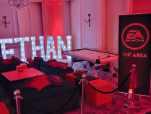
























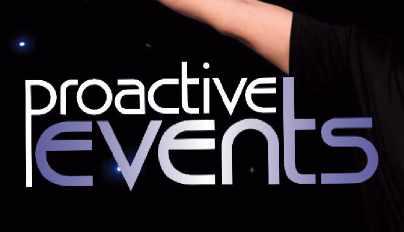













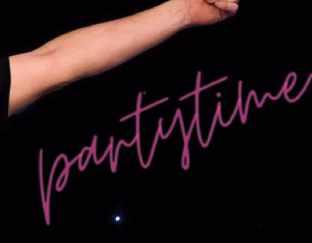

At WA Carr & Son, we enjoy helping families celebrate life’s special moments. This year alone, we’ve brought more than 1,600 events to life, from milestone birthdays and family gatherings to elegant dinners and celebrations. We take care of everything, from marquees and stretch tents to furniture, lighting, staging, and décor, so you can enjoy the day. Our friendly team works with you from the first chat to the final collection, making sure every detail runs smoothly. Whatever you’re planning, we’re here to make it simple, seamless, and exactly as you imagined.





If you’re making a party and don’t know where to start, Louisa Walters has a few suggestions
Do you sit at every function looking around the room in wonder thinking, “how did they bring this together?” There is so much to think about when planning an event but if you choose the right suppliers you cannot go wrong.
The first thing is the venue. If your preference is to keep it local so it’s easy for everyone to get to, Mill Hill’s premier kosher event venue is an ideal space and a firm favourite among event planners. Catering to the growing trend for casual lounge-style celebrations or formal banqueting, The Annie & Samuel Levy Hall is a unique blank canvas for creative design with excellent acoustics, a fully sprung dancefloor and a dedicated KLBD kitchen. Key features include integrated AV and lighting hanging points, a dedicated chuppah area, easy parking and reliable in-house security.
Meanwhile the Village Hotel London Watford has just opened 610 The Avenue – a unique and flexible event space which can welcome up to 300 guests. The ground floor offers a stunning suite with premium catering or self-catering options – perfect for any occasion. And of course you and all your guests have access to the Village Hotel right next door - with 123 contemporary bedrooms and more.


want to head away from north London for a destination experience. Easthampstead Park is a beautiful Berkshire wedding venue that blends tradition with a modern touch. The onsite team understands the importance of creating a Jewish wedding that feels truly personal and will work with you to ensure the perfect ceremony setup, flexible kosher catering and unforgettable celebration options. With grand architecture, elegant interiors, and versatile spaces you can shape a day that’s authentically yours, and with London only a short distance away, it’s perfectly placed for family and friends to share in every moment.


has over 10 years’ experi-
smoothly. Plus there is
Avenue at Henley’s Corner can host a wide range of celebrations in one of two rooms –Elysian is a generous space with no pillars and a contemporary design with high ceilings, state-of-the-art LED, mood lighting and audio-visual systems; Madison is suited to smaller, more intimate events, with sparkling chandeliers and darkwood finishes. Both are the perfect backdrop to any party. The team has over 10 years’ experience and will ensure your event runs smoothly. Plus there is plenty of parking onsite.
If you’re planning a wedding you might
If you’re planning
Now you need a helping hand to sort all the elements and with over 25 years of experience, Proactive Events specialises in delivering exceptional entertainment and bespoke event planning tailored to your vision and your budget. From simchas to celebrations, the friendly team offers a personal, hands-on approach, crafting every detail to perfection. Outstanding DJs form the heart of every event, complemented by professional lighting, live performances, and full production options to create the perfect ambience.
important element of any event, sprinkling magic on the room and bringing it to life.

tion. Outstanding DJs form the to celebrations. They take

and corporate events, bespoke menus and creative food stations
and Irit
Food is, of course, absolutely key. Blending tradition with modern culinary flair and specialising in Middle Eastern and Israeli-inspired cuisine, Mesiba elevates kosher dining to a stylish, contemporary experience. From intimate dinners to barmitzvahs, weddings and corporate events, bespoke menus and creative food stations are tailored to suit each event. Under the expert guidance of founders Neta Segev, Aviv Baum and Irit Gubbay, Mesiba combines years of culinary and event expertise with strict Kosher Federation supervision. Production is a really

final collection, the team with
The team at WA Carr & Son enjoys helping families celebrate life’s special moments and this year they have brought more than 1,600 events to life, from milestone birthdays and family gatherings to elegant dinners and celebrations. They take care of everything from marquees and stretch tents to furniture, lighting, staging and décor. From first chat to final collection, the team works with you to make everything simple, seamless and exactly as you imagined. For bar and batmitzvahs you’ll want to focus on the kids. Glittery Parties by Eva delivers bespoke, stylish and immersive event entertainment for kids parties, batmitzvahs and family celebrations. Eva and her team create unforgettable moments through glitter bars, lip gloss and perfume stations, slime making, hair braiding, face painting and more. Offering full event styling, coordination, venue liaison and unique activity stations, Glittery Parties ensures every celebration runs seamlessly. With reliable service, reasonable rates, kosher catering options and experience across the UK, Monaco and the USA, the company brings creativity, fun and sparkle to every event.
UlsterLass on Etsy ships worldwide and is a great option for keepsakes and
cute items such as mugs for barmitzvah mums and dads and champagne flutes engraved with l’chaim. All images on products are designed with thought, care and enthusiasm by the highly creative Pamela Maxwell, who herself is an ‘Ulster lass’. The range of adult and children’s apparel, cards, kitchenware and wall décor cover a very wide range of themes including Jewish holidays, and world travel. Every bar and batmitzvah holds a story and HillFilms creates a cinematic keepsake of it with a handcrafted film capturing every emotion: the proud smiles, the heartfelt speeches and the energy on the dance floor. Your videographer learns your child’s personality, your family’s traditions and what makes this moment uniquely yours so you end up with a film that is bespoke to you. Multi-camera coverage results in luxurious cinematic visuals and a beautifully crafted film and highlight reel to relive the excitement forever.


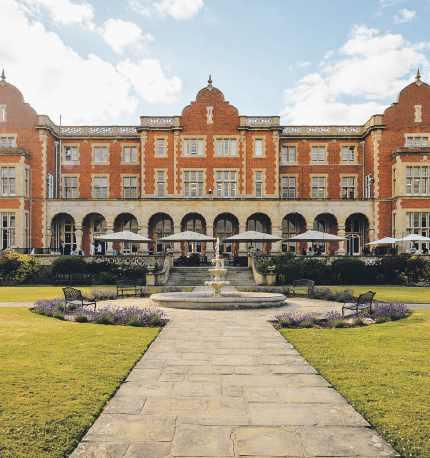

Beautiful gardens & grounds with versatile spaces for your bespoke style celebration.
Plenty of room for large guest lists and exclusive use hire.
Kosher f riendly catering options or dr y hire the venue.
Dedicated operational team.
Easy access f rom London & the M3/M4 , f ree parking, plus 93 on site guest bedrooms.



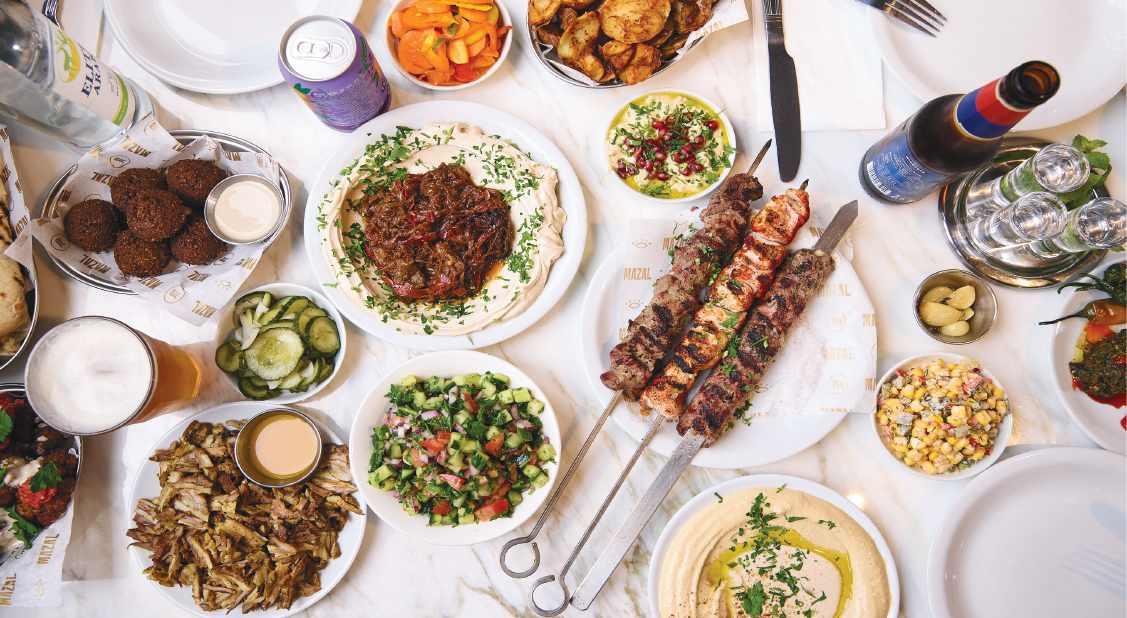

























Patrick Marber Tax expert Autumn budget
Unique art show is proof that creatives can be as successful as rat-racers at reinventing themselves. By Anthea Gerrie
Aformer chef, a singer-songwriter, a political consultant, a cosmetics marketing executive and Jewish fashion doyennes Lucille Lewin and Nicole Farhi, who have evolved into full-time visual artists, are among 10 artists who have returned to their studios to find fresh success and recognition after not showing for several years and their work is being shown in London.
Even the curators of Second Lives, which opens today, reinvented themselves to pursue their passion for art.
Paula Lent, formerly a lawyer at Mishcon de Reya, explains that she left the legal profession after 15 years and dedicated her time to having children late in life while completing a master’s in art history. “Then I was offered the chance to curate an exhibition for an international artist who wanted to establish herself in the UK. With no experience I took the job.”

Like the artists she champions, who drew on skills from previous lives, she transferred those she had acquired herself, namely “meticulous planning, a strong work ethic and attention to detail”, to the art world.
Hanging the new show in Fitzrovia with co-curator Jane Neal, Lent confesses to a fascination with parallel lives since meeting the late great Frank Auerbach and learning of his own early interest in becoming a lawyer before evolving into one of Britain’s greatest painters: “He also challenged the negative connotations attached to artists who had departed from their calling.”
That comment fostered her curiosity about established artists with gaps in their exhibition CVs, including the other two Jewish artists showing – multi-prizewinning painter Davina Jackson and internationally-exhibited sculptor and installation artist Jyll Bradley.
Motherhood prompted Jackson’s first pause after a glittering start, winning the Gold Medal in painting from the Royal Academy, where she finished her training. “My art had to take a back seat when my first son was born,” says the London-based artist, who gave birth to three children within five years. “Apart from the fact of having no energy left, something my mum said stayed with me: ‘You’re always going to have your art, but your children are going to be growing up and you’re never going to have that time back again’.”
She welcomed that break but not so much a second enforced pause in 2019, when a shock
breast cancer diagnosis was followed by Covid preventing her from travelling from her Finchley home to her studio in West Hampstead. But that very limitation led to reinvention via a new medium.
“I did loads of watercolours at home and entered them into The Sunday Times watercolour competition. I made it into the finals and the exhibition, and made loads of new contacts – it was a blessing.”
Elected to the Royal Watercolour Society in 2023 after winning its Open award, this year she was highly commended in the competition for the John Moores Prize, reaching the shortlist of five for what is considered the most prestigious painting award in the UK.


Jyll Bradley takes inspiration from the kabbalistic concept of ratzo v’shov, which translates as running and returning. “What’s brilliant about Judaism is that it’s almost a commandment to question your practice, recreate, evolve and begin again,” says the artist famous for creating work in fluorescent Plexiglas, with mezuzahs a recurring motif. “In fact I see Grafts, the self-portraits I’ve created in Plexiglas my own height, as giant mezuzot.”
Although she did not show her visual art for the 10 years she concentrated on writing for radio, she says it is her artworks of herself having a second life in this show. “By coming back to self-portraits I took 40 years ago when I didn’t really understand them, and showing them now encased in Plexiglas, I am framing my past in my present.”
Lucille Lewin, founder of the fashion chain Whistles and creative director of Liberty, is living proof that it’s never too late to consider a new career – she was 69 when she won the
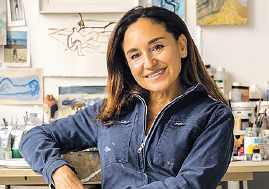
Royal College of Art’s Young Masters award, having had her life changed by a pottery class. It saw her transition from the simplicity of tailored fashion to the messy micro-worlds of fragmented porcelain, through which she expresses her feelings about unsettled times when nature struggles to survive as the ecology declines and chaos rules.
International men’s and womenswear designer Nicole Farhi, with whom Lewin has exhibited several times, was also in her 60s before finding the freedom to walk away from her last collection and concentrate fulltime on the sculpture she studied at evening class before being mentored by Sir Eduardo Paolozzi. Now a member of the Royal Society of Sculptors, recipient of a CBE and the Legion d’Honneur from her native France, where her work is celebrated in a museum dedicated to women artists, she does not deny the importance of her switch to fashion, which she studied alongside art in Paris, saying it has brought “everything” to her studio practice.
Neal, who has been described as one of the most knowledgeable of all independent curators, strove for her own reinvention after her art education was interrupted not by a switch into fashion, but by teenage pregnancy. She was a 23-year-old mother of two when she realised she was in “the wrong picture. I was born to be a creative. I drew constantly but knew I needed to study”.
Within six years of funding courses with cleaning work and studying after putting her children to bed, she graduated from the Ruskin School of Art and the Courtauld Institute and launched the creative career she had put on hold. And this second life was informed
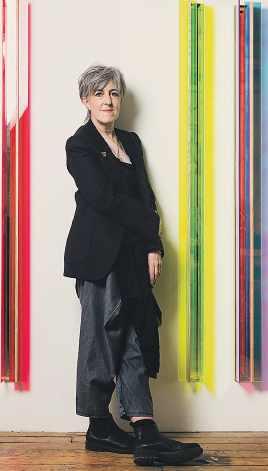

by her first, she emphasises: “I realise how much experience and invaluable perspective I gained by being a working mother”. She hopes showing the work of others who have succeeded in living their creative dream will inspire visitors who may have suppressed their own: “If you find yourself living in the wrong picture, change it.”
■ Second Lives is at 14 Percy Street, London W1 until 24 November. Nicole Farhi and Lucille Lewin will participate in a Q&A on 21 November 21 at 6pm
Patrick Marber, who directed the current run of The Producers, says he feels a responsibility to his people. By
Darren Richman
Patrick Marber’s career has had three distinct phases. He started o as a comedian and his work as a writer-performer in The Day Today and Knowing Me, Knowing You... with Alan Partridge were essential contributions to canonical British television of the 1990s. He shifted his focus to playwriting in the middle of that decade and penned Dealer’s Choice and Closer in quick succession, works that earned comparisons with Harold Pinter and ultimately led to screenwriting opportunities by the mid-2000s.
first time aged 10 or 11 and being broken by the knowledge.”
These days he considers himself “culturally but not religiously Jewish”, a description he feels applies to many people in the creative arts. The last decade has seen him take on a plethora of plays addressing Judaism directly or penned by esteemed Jewish writers and it seems that the career move was both conscious and unconscious:

Recently, he has become known for his theatre directing and has taken on plays by iconic Jewish figures like Pinter, Tom Stoppard, David Mamet and, most recently, Mel Brooks.



“You direct one, you get o ered others… When I was doing Leopoldstadt, it was the first time I’d been in a rehearsal room with a lot of Jewish actors and I liked that feeling of community. I felt that this territory is allowed to be mine.
“In a culture war respect, nobody can say I don’t have the right to direct this play. It’s lived experience, I know the territory and I feel safe with it.”
Marber was approaching his 60s at that point and was keen to continue working. He recognised this was an area culturally he was “allowed to be” as well as the fact that there “aren’t that many Jewish directors around”.
He felt interested in the subject as well as knowledgeable, mentioning that he has always been drawn to Jewish

We are speaking in the immediate aftermath of the West End transfer of The Producers, the first major revival of the show in London since its original run. Marber did not see that production and though a fan of Brooks, was “more drawn to Woody Allen as a comedian of the same generation”, saying he was “more of an influence as old Jewish comics go”. Still, he loves Brooks’s films and especially the “sheer joy and chutzpah” of the original movie, so was delighted to be told by the son of the cinema legend that his father would be very happy with this version of his show. Brooks hasn’t been able to fly over since “the man is 99 and he’s probably got other things to think about”.


writers, praising above all
Steve


Philip Roth, Arthur Miller, Neil Simon and his “current hero” Larry David.
Marber tends not to perform much these days although he would welcome the opportunity, feeling he is now of an age to become an “old character actor”.
One notable aspect of his early work in front of the camera is the way in which his collaborations with Steve Coogan, Armando Iannucci and Chris Morris tended to deal in archetypes in much the same way The Producers does.
He recognises that through line in his career: “The more I got into this play in rehearsals, the more I felt I’d been here before and stolen from this before without being fully conscious of it. Once you’ve seen The Producers as a young person, you can’t forget it… Big and real is what I say to the actors.”



movie, so was delighted to be told by The in the aftermath of the full knowledge of the Holocaust that was not “solemn and serious”,
Marber sees himself as a writer first and foremost: “I feel it’s what I’m meant to be doing and the thing I feel guilty about when I’m not doing it. It must be embedded in me more powerfully than acting or directing.”
His definition of writing has an




To the best of the director’s knowledge, Producers was the first treatment of the Nazis in the aftermath of the full knowledge of the Holocaust that was not “solemn and serious”, released as it was in 1967, within spitting distance of the Second World War. He speaks with evident reverence about Brooks as “the first person to take it on and realise there was another way of looking at this”.
family did the prayers for bread and wine

Marber had a bar mitzvah and his family did the prayers for bread and wine on Friday nights, but when asked about how Jewish his upbringing was, the response is telling:

“I was very conscious of antisemitism and worried about it as a child. I experienced it at school. I remember learning about the Holocaust for the

magical thing, whether it’s a joke in a text or a He comedy writing work in three decades.
Despite his status as a multihyphenate, almost childlike sense of wonder, “plucking something out of the air that hasn’t been written before strikes me as the most magical thing, whether it’s a joke in a text or a sitcom.” He has, indeed, just written a situation comedy for Tom Hollander, his first pure comedy writing work in three decades.
way that hasn’t been the case previously. This even found his Jewishness a ecting his time
“Jewish humour” means he prefers “sniping from the side”.
The new production of The Producers identifies Bialystock and Bloom as Jews in a way that hasn’t been the case previously. This should come as no surprise given the director even found his Jewishness a ecting his time as a director of Lewes Football Club, loathing leading board meetings and feeling that his “Jewish humour” means he prefers “sniping from the side”.
Marber’s work has undeniably become more overtly Jewish with the passing of time and he clearly feels a tremendous sense of responsibility, not just to Brooks but to his people at this particular historical juncture:
more overtly Jewish with the passing of time responsibility, not just to Brooks but to his people at this particular historical juncture: moment.
“As the Jewish director of what I think of as a Jewish musical, I’m conscious that we Jews are under siege at the moment. The rise of antisemitism is frightening for us and I feel it in my bones. We’ve been here before.”
in my bones. We’ve been here before.”

Shackell joined St Margaret’s Hampstead as Headteacher earlier this year. She tells Jewish

What are the advantages of a single-sex school for girls?
At St Margaret’s Hampstead, a girls-only education means limitless possibilities. Free from gender stereotypes, every subject is open to every girl whether it’s STEM, the arts or humanities. Our tailored approach fosters collaboration, communication and critical thinking, equipping girls for success at Sixth Form, university and beyond.
Most importantly, we create an environment of psychological safety: a space where girls feel con dent to take risks, make mistakes and try again. is builds resilience and independence, shaping fearless leaders ready to thrive, whether captaining sports teams, leading school council or excelling academically.
With up to 170 pupils aged 4-16 and an average class size of 14, every girl is known by name and encouraged to shine in every sphere – sport, drama, music and academics.
Why should parents choose St Margaret’s Hampstead?
1. A True Family School: with up to 170 girls and small classes, we o er a homefrom-home environment where every child is known and valued.
2. Academic Excellence: our girls consistently achieve exceptional valueadded results, performing signi cantly above baseline expectations.
3. Psychological Safety: we know that girls who feel secure thrive and we make that happen here.
What is on o er for students?
e broad curriculum o ers GCSEs in English, Maths, triple Science, Spanish, French, History, Geography and Art. ere is a strong emphasis on preparing students for life beyond school, with a ve-year strategic plan guiding ongoing curriculum review. Physical education is a highlight, with six lessons a week and a variety of sports, including football, which is especially popular. Girls also get the chance to do climbing and rowing.
Why move at Sixth Form?
After years of growth at St Margaret’s Hampstead, our girls leave at 16 ready for new challenges. ey are con dent, ambitious and prepared for the next stage of their journey. We support this transition with tailored guidance,

preparation and one-to-one interview coaching, ensuring every girl embarks on her next chapter with purpose.
Where do they go for Sixth Form?
Our students progress to leading schools, both single-sex and co-educational, including Camden School for Girls, Channing, City of London School for Girls, Francis Holland Regents Park, Highgate, Queen’s College, South Hampstead, St Helen’s, St Marylebone and UCS. We guide families every step of the way to ensure the right t.
How inclusive is St Margaret’s Hampstead for Jewish students?
Over 25 percent of our students are Jewish and inclusion is at the heart of our ethos. Jewish girls proudly embrace their identity and can easily take time o for key holidays. As a Jewish member of sta myself, I can attest to the warmth and respect within our community.
What pastoral care is o ered?
Pastoral care is central to life at St Margaret’s Hampstead. Every girl bene ts from daily tutor time, a strong House system and our unique Family Tree mentoring, where older students support younger peers. Our small size ensures no child is overlooked and every girl thrives.
u st-margarets.co.uk
Instagram: stmargaretshampstead and Facebook: St Margaret’s Hampstead










By Candice Krieger candicekrieger@googlemail.com


As Rachel Reeves prepares to wield her red Budget box, business leaders o er their economic forecasts and insight, writes Candice Krieger
hancellor Rachel Reeves is preparing to deliver her muchanticipated Budget next week, amid warnings of a £30bn shortfall. As speculation mounts, leading business figures tell Jewish News what they want to see from the chancellor to ensure long-term economic growth.
CSIR MARTIN SORRELL
FOUNDER AND EXECUTIVE
CHAIRMAN AT S4 CAPITAL PLC
“It’s clear Rachel Reeves has a sizeable black hole to fill, probably at least £25bn, when you include a £5bn buffer against contingencies. And it’s no secret that she has been eyeing up tax hikes across several areas in order to fill the hole – high-end property, extending National Insurance, pension tax reliefs – to name but three.
“Maybe there will be increases in capital gains tax and even a tax raid on the assets of those leaving the UK.
“But while it now seems inevitable that taxes will rise before things get better, each or any of these measures will have damaging consequences. And more to the point, you don’t get growth by raising taxes. As any company knows, to do that you need to invest and to provide people with the motivation to commit their time and energy.
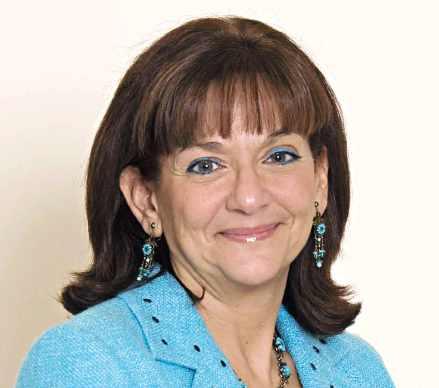
unused pensions – have unsettled confidence in long-term investing and pensions. Instead, pension contributions could actually improve British growth – at no extra Exchequer cost.
“£70bn in tax and national insurance reliefs are added to pension contributions every year, yet most of the money is invested overseas. Why are taxpayers spending such huge sums to benefit
other countries, rather than the UK?
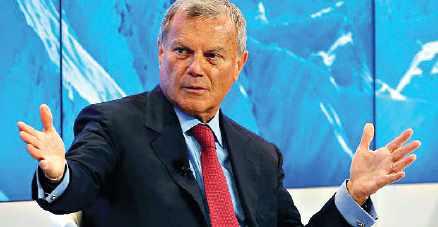
understandable, but reform should be about unlocking movement, not restricting it.
“Every increase reduces transactions and confidence while delivering diminishing returns to the Treasury. I believe cutting rates at the lower end would help first-time buyers and improve market fluidity.
challenges. Early on, it increased national insurance, a move that has led many industries – particularly in the service sector – to cut jobs or halt further investment. This has proved counterproductive. We need a budget that fosters growth and productivity, but we also need one that offers hope and reflects reality.
“There should also be a stamp duty discount for older homeowners who choose to downsize, freeing up family homes and encouraging mobility.
“Last month, Jewish Care held its volunteer awards. In January, I will co-chair the Jewish Volunteering Network Awards Ceremony, where
invest in their businesses and to stay
“So unless the budget includes an equal package of tax reliefs and other incentives to encourage people to invest in their businesses and to stay in the UK, it will take us further away from growth and be self-defeating.”
BARONESS ROS ALTMANN CBE
FORMER GOVERNMENT
PENSIONS ADVISER
“Tax increases to help fill the Chancellor’s fiscal shortfall will undermine her key priority of boosting long-term investment and growth. Tax rises dampen economic activity, but there are much better options she could consider by using pensions.

“Tax raids on middle Britain, wealth taxes, higher capital gains taxes and cuts to pension allowances – and last year’s dreadful imposition of inheritance tax on
in British assets – as a condition of receiving taxpayer subsidies – would revive our once-strong domestic long-term investor base. Without spending more money, pension funds could drive much-needed long-term investments, including infrastructure, housing, life sciences, alternative energy and new or established businesses, increasing business confidence, re-rating our undervalued markets, attracting more companies here and boosting
“Requiring perhaps 25 per cent of all new contributions to invest Britain’s growth.

about building a healthier, more
“I’ve explored scenarios where halving stamp duty and introducing a modest, value-based annual property levy would create more liquidity and a steadier long-term income stream for government. It’s about building a healthier, more sustainable housing ecosystem, not applying short-term fixes.
“Overly-risk-averse regulation drove pension funds to reduce higher expected-return investments, especially driving sales of UK equities, for the last 20 years.
reduce higher expected-return investments, equities, for the last 20 years.
“This weakened our economy and markets, yet other global pension funds invest heavily in domestic growth assets. Instead of cutting higher earners’ pension tax allowances, which puts people off pensions, let’s drive contributions to
allowances, which puts people off benefit Britain.”

DANIEL DAGGERS FOUNDER AND CEO OF DDRE GLOBAL
“The recent talk around stamp duty, capital gains tax and even a potential mansion tax is
gains tax is ever applied to main up
“Beyond that, council tax is outdated and no longer reflects today’s economy. And if capital gains tax is ever applied to main residences, there must be at least a year’s notice — otherwise, the market will seize up overnight. We need to incentivise movement, not hesitation.”
ELISSA BAYER SENIOR INVESTMENT
DIRECTOR AT RATHBONES
“For many years, the Budget date has been announced with growing speculation about what the chancellor of the day might do.
and a pledge not to raise
“This time, the frenzy feels more acute, driven by a black hole of at least £20bn in various forecasts and a pledge not to raise the three main revenuegenerating taxes.
“Over a year ago, the new government was elected but has faced significant
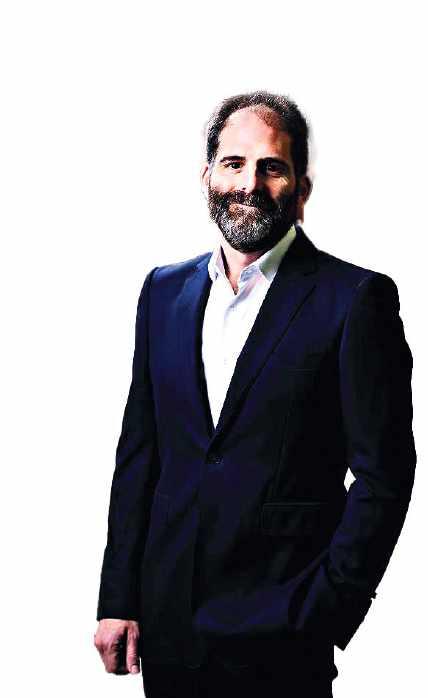

more than 70 charities will honour individuals who go above and beyond in their organisations.
“These charities provide essential services that the government and local authorities can no longer deliver. The government could secure a real win by allocating additional funds to support these vital e orts.
“The public needs reassurance that if taxes are raised, the money




will be spent wisely and deliver tangible results. Right now, that confidence is lacking. So why not invest in the people and organisations that do deliver results and genuinely make a di erence?”
NICK GROSS FOUNDER AND PRINCIPAL CONSULTANT AT LANBURY HUNDRED, A SPECIALIST








RESTAURANT AND HOSPITALITY CONSULTANCY
“The most beneficial gifts to our industry from the Chancellor would be: One: Any drop, temporary or permanent, in VAT rates as per the long-standing staggered reductions used in France and other countries to stimulate profitability and growth.
“Two: Stimulus measures to support or fund cheap or at least a ordable bank loans for operators who have struggled for years to find money from the High Street lenders.
“Three: Confirmation that continued access to Small Business Rates Relief will be made available as young single-site businesses seek to grow without hindrance.
“Four: Substantial investment in colleges and apprenticeships for young people seeking to join the industry – arguably one of the biggest employers in the UK –especially in light of recent changes to the Skilled Worker Visa scheme, which removed chefs as an applicant category almost overnight in the summer. Chefs don’t just cook in posh restaurants – they cook in schools, prisons and hospitals too!”
BOBBY LANE
CEO OF MULTI-DISCIPLINARY OUTSOURCING PRACTICE FACTOTUM
“Anyone connected to business is




anxiously awaiting the Budget.
“The government’s ongoing negative commentary around the economy, combined with its fixation on tax rises as the only solution, is draining confidence. Genuine progress will only come from optimism and ambition.
“We’ve seen glimpses of what bold thinking could achieve. Liz Truss’s attempts to stimulate growth may have delivered results had they been better executed and communicated. What’s clear now is that the narrative must shift from doom to opportunity.
“SMEs need robust, targeted support for investment and innovation, enabling firms to scale up and improve productivity. There’s also a pressing need for incentives to recruit and upskill staff from training to reliefs that reduce hiring costs and help address critical skills shortages.
better routes to capital through government-backed loans or policies that genuinely fuel expansion.
“Above all, what businesses crave is stability and trust in policy, in leadership and in the direction of the economy. The next Budget must prioritise confidence, entrepreneurship and sustainable growth.”


“Simplifying the tax system is equally vital. Business owners repeatedly tell us that clarity and consistency would give them far greater confidence in planning and forecasting. Access to funding must also improve, with














As the new Jewish year begins and the winter darkness approaches, staying on top of your wellbeing can be hard. That’s where Project Lily’s ‘hugs’ come in.
We’re all about improving the Jewish community’s wellbeing with initiatives such as our popular free training and self-care projects like the recent Awesome August Hug.
November 17th to 23rd is Self-Care Week - so here are two things to look out for: our Send Someone a Hug campaign - we’ll be promoting the huge benefits of social self-care with a smile our FREE November self-care training – bookable now at www.projectlily.org.uk/training
We hope you’ll join us in caring for yourself and others. Have a great winter!

www.projectlily.org.uk
If you’d like to donate, we are a Registered Charity: Number 1171723



In our thought-provoking series, rabbis, rebbetzins and educators relate the week’s parsha to the way we live today

BY RABBI ELCHONON FELDMAN CHAIRMAN OF THE RABBINICAL COUNCIL OF THE UNITED SYNAGOGUE
As I write, our community is on the cusp of departing for a mission to Israel more than two years in the making. We will spend a week travelling the country, but more significant than the places we will visit are the people we will meet and the strengthening of our shared commitment to Israel, its people and values, at this defining moment. With this journey in mind, I have found myself reading this week’s sedra, Toldot, through a di erent lens: one focused on legacy and identity.
The sedra opens with a seemingly repetitive statement: “These are the generations of Yitzchak, son of Avraham; Avraham fathered Yitzchak.” If the verse has already said Yitzchak is Avraham’s son, why repeat that Avraham fathered him? Rashi, building on a Talmudic midrash, explains that some doubters ques-
tioned Yitzchak’s lineage, claiming he might have been fathered by Avimelech after Sarah was taken into the Philistine king’s palace.
To dispel this rumour, Hashem caused Yitzchak to resemble Avraham so closely that no one could deny their connection. Hence the double emphasis.
Yet this solution creates a different tension. If father and son looked identical, where was Yitzchak’s own identity? Rabbi Jonathan Sacks notes a further textual redundancy later in the sedra that offers a solution: “Avraham was old, advanced in years.”
The Talmud teaches that until Avraham prayed for the visible signs of ageing, people did not appear older. His request ensured that generations could tell themselves apart, a subtle acknowledgement that children are not meant to be duplicates of their parents but rather to grow into their own distinct roles.
This message plays out throughout Yitzchak’s story. Much of his early life closely
parallels Avraham’s: famine leads him to the land of the Philistines just as it did his father; he describes his wife as his sister under similar circumstances; and he disputes with the Philistines over wells, just as Avraham had done. It is as though Yitzchak’s journey begins in the long shadow of a towering parent.
But at a key moment, the Torah signals a shift. After Yitzchak’s encounter with Avimelech, Hashem blesses him directly, not as a continuation of Avraham’s covenant, but as an individual. And his first act is deeply symbolic: he re-digs his father’s wells.
Haketav VehaKabbalah explains this as more than restoring water sources – it represents Yitzchak reopening the flow of his father’s teachings and values, as a custodian bringing them anew into his own world.
This theme feels especially resonant. We are living through a moment that has reshaped Jewish consciousness, forged in the wake of 7 October, the ongoing trauma, and the return of

hostages. We are, in many ways, a generation stepping into terrain whose pathways have not yet been drawn. We cannot simply replicate the past; we must interpret its values afresh.
Like Yitzchak, we inherit a powerful legacy. But our task is to uncover it for our time, to redig the wells of faith, resilience, peoplehood and moral clarity, and allow them to flow into the present moment.
As our community embarks on this mission to Israel and all of us embark on this new chapter of Jewish history, we do so not only as inheritors of history but as shapers of its next chapter. May we carry forward the values passed to us, and may we find the courage to express them with integrity and purpose in the uncharted landscape ahead.


Suits from £79.50
Overcoats from £79.50
SUITS NOW FROM £69 OVERCOATS FROM £69.50
Trouser Bargains £25
10 Golders Green Road London NW11 8LL Opposite Cafe Nero
TROUSERS £20 EACH, 2 PAIR FOR £30, 28-48 INCH WAIST
Raincoats from £49.50
SPORTS JACKETS AND BLAZERS FROM £39.50
CASUAL JACKETS FROM £29.50
KNITWEAR FROM £10
SHIRTS FROM £10
SHOES FROM £15
Open everyday & Sundays til 5:00pm













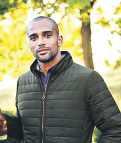





IGOR ZINKOV
On Sunday, we dedicated the main foyer of the Liberal Jewish Synagogue (LJS) to the memory of Rabbi Dr David Goldberg, the late Emeritus Rabbi of the LJS, who served the synagogue for nearly 30 years.
In preparation for the event, I re-read his sermons. In one, delivered on Saturday 26 November 2000, he reflected on the meeting between Abraham and the Hittites, in parshat Chayei Sarah, which we read last week, connecting it to a modern theory of civilisational conflict.
Rabbi Goldberg cited Samuel P Huntington, a Harvard scholar, who argued that in the post-Cold War era, cultural di erences, rather than ideology or economics, would be the primary source of conflict globally. He identified several major civilisations, particularly noting the rising influence of Islamic and Confucian civilisations and the decline of Western civilisation.
Huntington suggested that as civilisations interact more, they will clash over di erences in language, religion, values and social structures.
Reflecting on this theory, Rabbi Goldberg said: “We don’t have to agree with Huntington’s thesis. Indeed, we can robustly refute it. Nevertheless, when the religion, language, customs, literature, institutions and claimed territorial home of one civilisation come into direct conflict with the same accoutrements of another civilisation, what follows is the situation that we have in the Balkans, in Kashmir, and least soluble of all for the last hundred years, in the Middle East.
“We must continue to put our faith in negotiation, not war, and to press for compromise on both sides... If only, we might sigh, the positive experience of Abraham with the Hittites 4,000 years ago could be duplicated in our own time.”
Rabbi Goldberg’s words feel as urgent now as when he wrote them. Many forces in our world use our di erences to divide us.
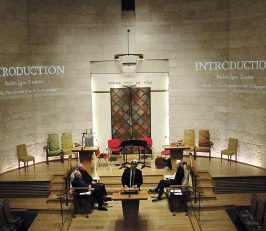
Some forces present our world as a clash of civilisations. We don’t have to agree with this worldview.
In that ancient meeting between Abraham and the Hittites, each side recognises the humanity of the other. They speak with courtesy, they listen, and they reach an agreement. Their encounter is marked not
by suspicion or dominance, but by mutual respect.
In our own fractured world, where cultural, political and religious di erences are often weaponised, the vision of respectful co-existence remains relevant. Encounters of civilisations need not mean collision, division and conflict.
The ‘fault lines’ and tensions on the world map may still run across our world. Still, Rabbi Goldberg’s sermon o ers another kind of map: one that creates the possibility of meeting, understanding, and shared dignity. It is a map that points us not toward the clash, but toward the conversation, the space where we can still recognise one another as b’tzelem Elohim, made in the image of God.
As Rabbi Goldberg put it, if only the positive experience of Abraham with the Hittites could be duplicated in our own time. Perhaps the task of all liberal, progressive and openminded Jews in the Age of Division is to do exactly that – to be agents and examples of positive encounter with others.







ANTIQUES
Antique – Reproduction – Retro Furniture (any condition)
Epstein, Archie Shine, Hille, G Plan, etc.
Dining Suites, Lounges Suites, Bookcases, Desks, Cabinets, Mirrors, Lights, etc.
House clearances
Single items to complete homes
MARYLEBONE ANTIQUES - 8 CHURCH STREET NW8 8ED 07866 614 744 (ANYTIME) 0207 723 7415 (SHOP)
closed Sunday & Monday
STUART SHUSTER - e-mail - info@maryleboneantiques.co.uk
MAKE SURE YOU CONTACT US BEFORE SELLING


Furs, Jewellery, Old Costume Jewellery, Watches, Silver, Designer Bags, anything vintage. 01277 352560
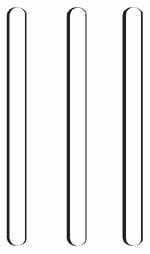
Friendly Family Company established for 30 years We clear houses, flats, sheds, garages etc. No job too big or too small! Rubbish cleared as part of a full clearance. We have a waste licence. We buy items including furniture bric a brac.
For a free quote please phone Dave on 07913405315 any time.


Confidential Bereavement Counselling for adults and children individually. Support Groups available. We offer in person, online and telephone counselling. Contact Jewish Bereavement Counselling Service in confidence. 0208 951 3881 enquiries@jbcs.org.uk | www.jbcs.org.uk
Call our Legacy Team on 020 8922
or












eaving Your Legacy
Monday-Friday 12:00-4:00pm – 2 course lunch, starters and main £16.95. Happy to celebrate in style – birthday and events day. Every Friday, 7pm-9pm live music plus happy hour.





